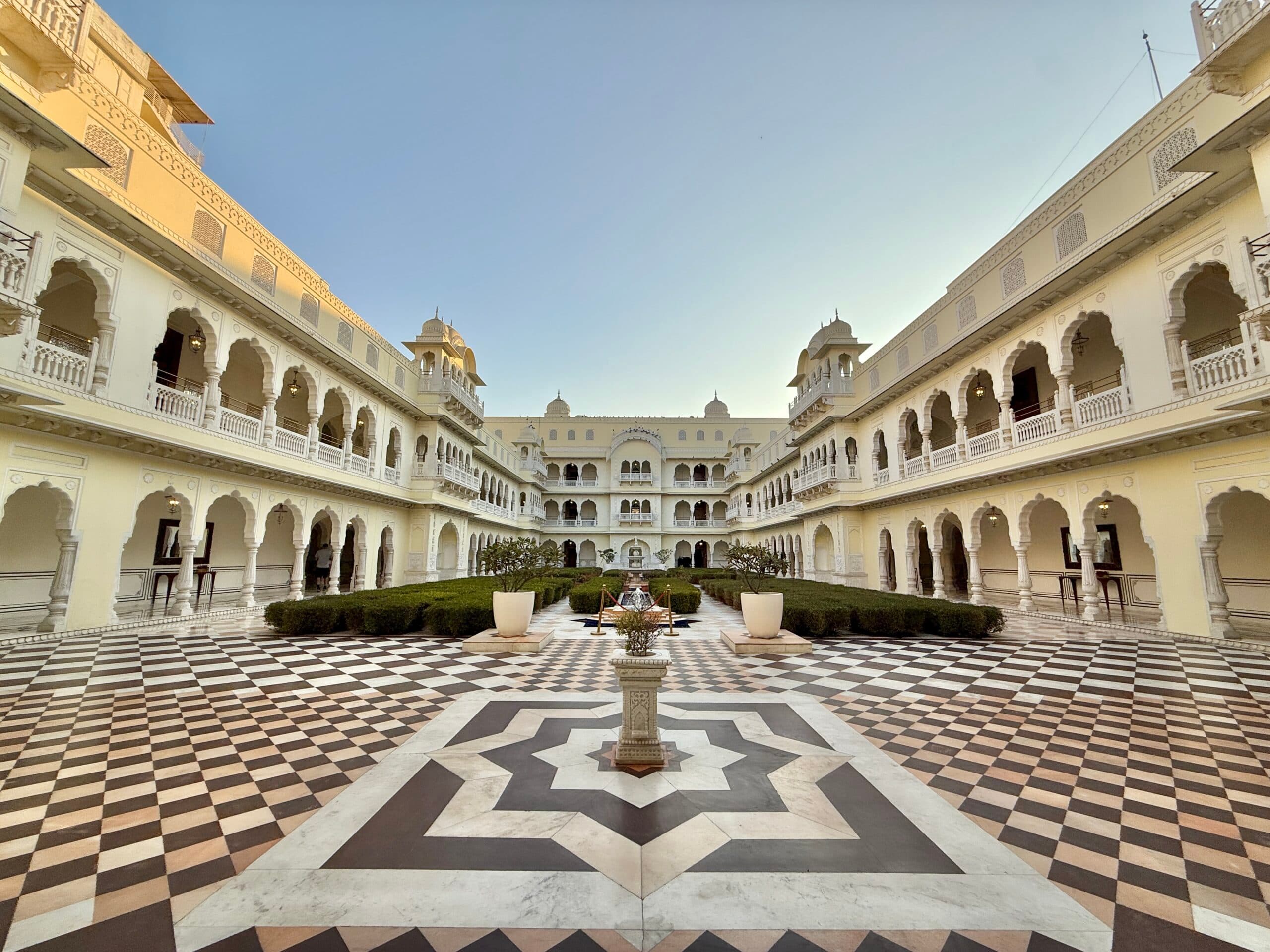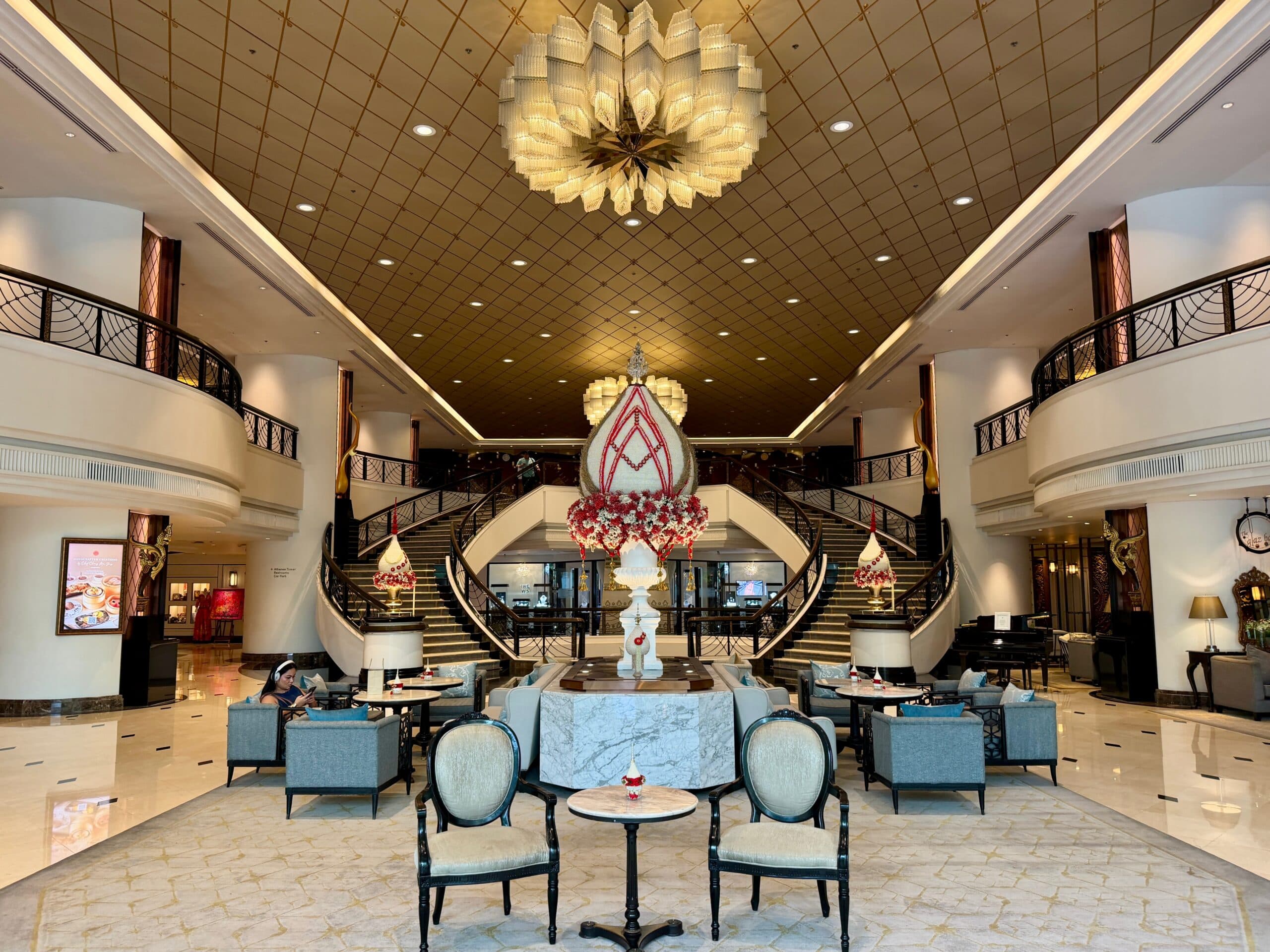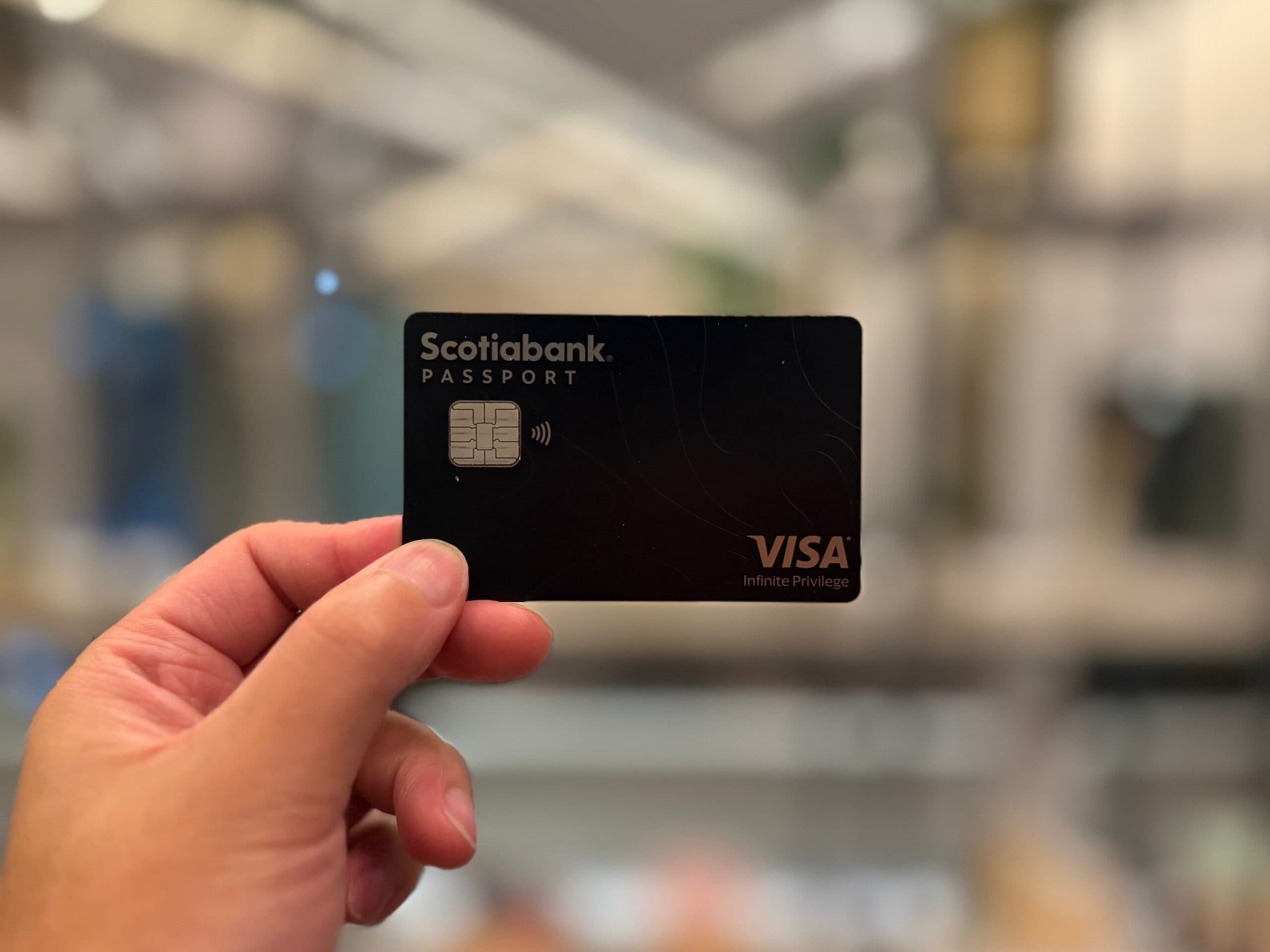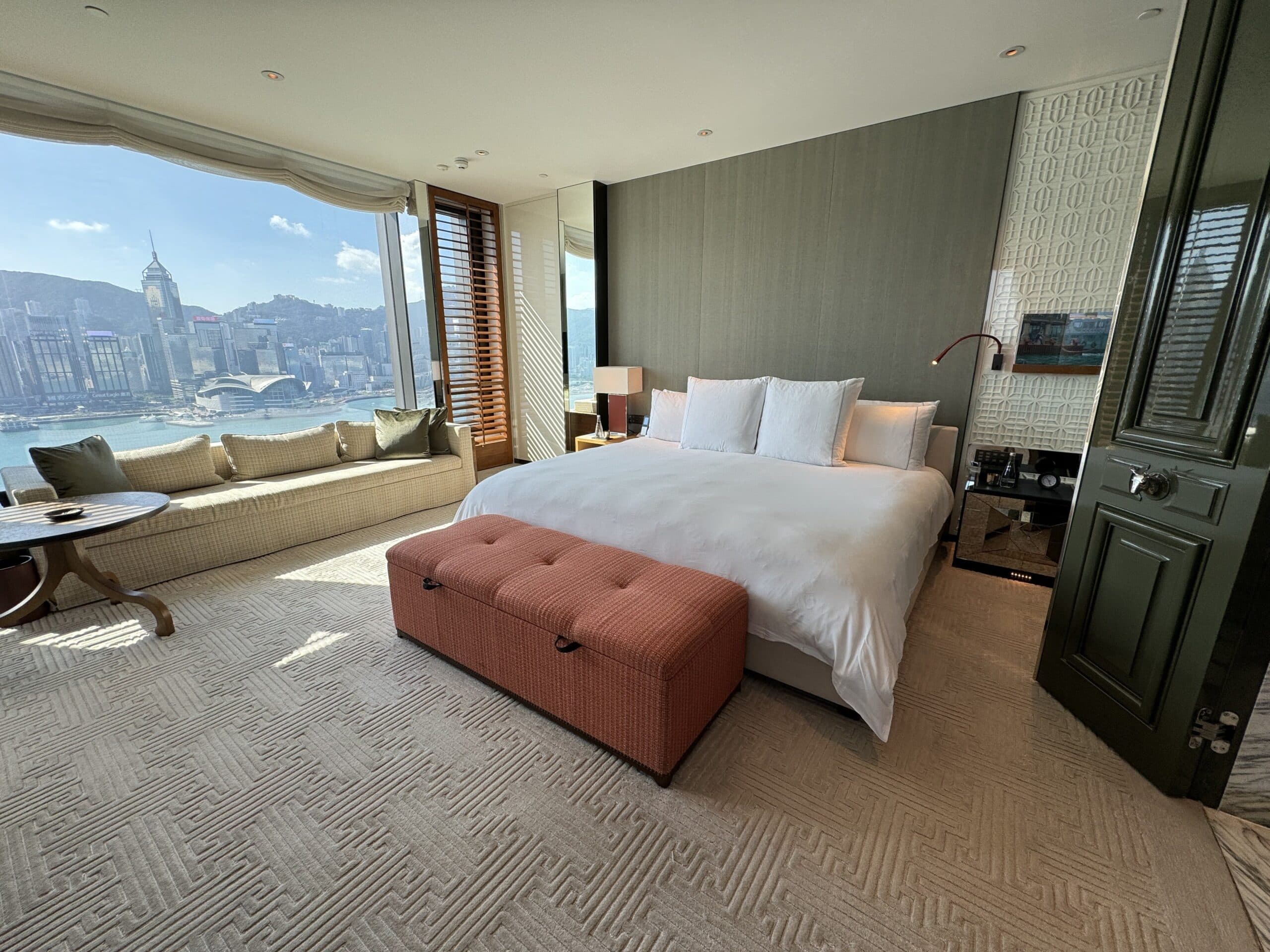Review: Sheraton Oman
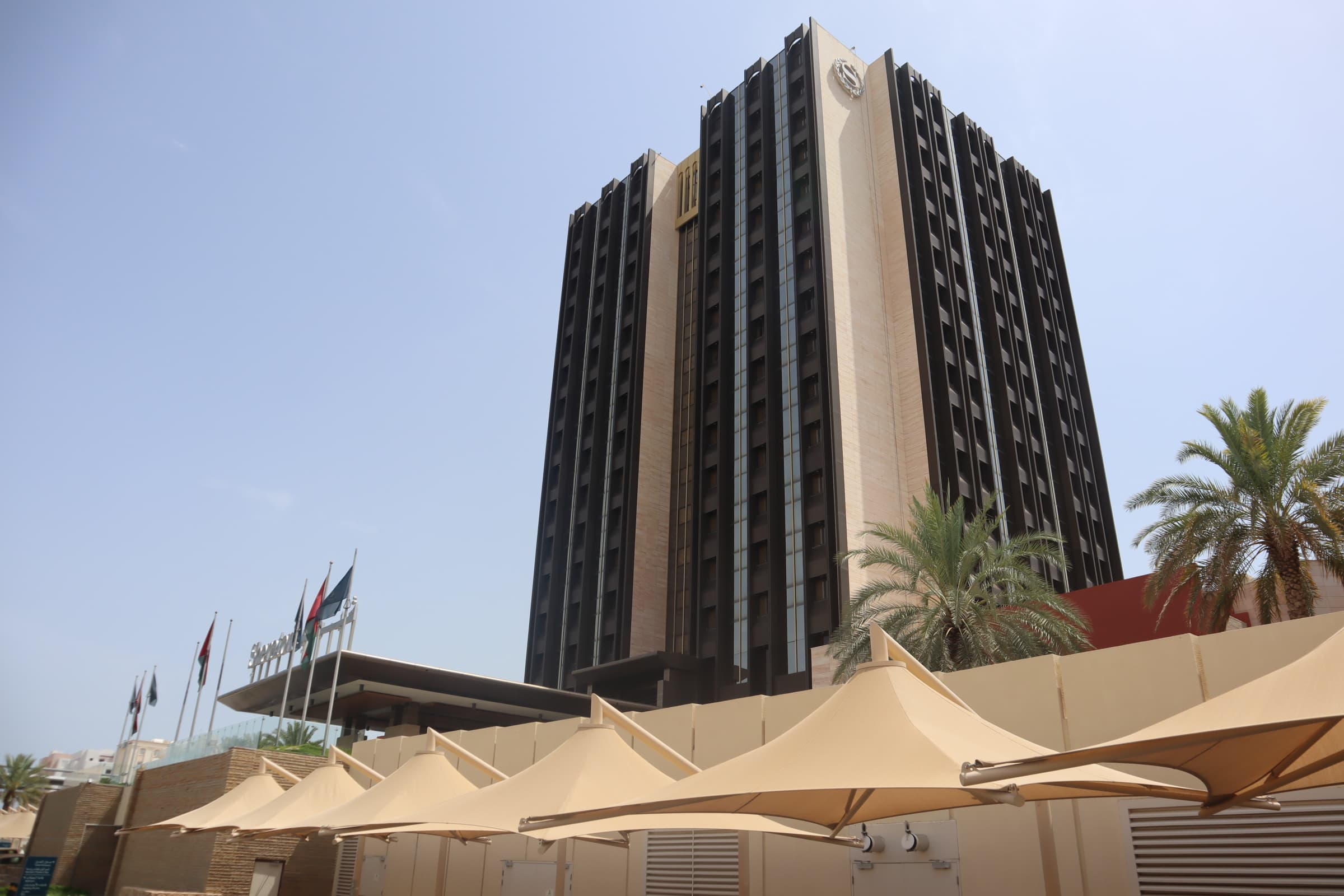
The next leg of my Middle Eastern journey continued with a flight across the Arabian Gulf from Jordan to Oman.
With four nights planned in the capital, Muscat, I decided to take this opportunity to redeem one of the seven-night hotel certificates that I had earned from the legacy Marriott Travel Packages.
The old Travel Packages were so lucrative that it was absolutely worthwhile for me to use a seven-night certificate even though I’d only be staying for four nights. I chose the Sheraton Oman, a Category 4 property within Marriott Bonvoy, to be my home base for my time in the country.
The other options available to me were the recently-opened W Muscat, a Category 5, and the Ritz-Carlton Al Bustan Palace, a Category 6. I decided to go with the lower-tier hotel this time around and save my Category 5 certificate for a future trip when I’d be able to use up all seven nights.

If you’re booking a Marriott hotel, consider making your booking through the Prince of Travel affiliate link, which helps to support the website.
In This Post
- Location & Arrival
- Check-in
- Studio Suite
- Breakfast
- Sheraton Club
- Other Facilities
- The Best of Oman
- Conclusion
Sheraton Oman – Location & Arrival
Arriving at Muscat International Airport around midnight, we had the option of taking a taxi or the local bus to the Sheraton. While we were able to negotiate the taxi fare from 10 OMR ($34) down to 5 OMR ($17), it turned out that the bus would only cost 1 OMR ($3.40) per person, so we went with the more adventurous option of taking the bus into town. The bus driver and bus station attendant were exceedingly friendly in helping direct us to the right bus, which gave us an excellent first impression of Oman.
Bus number 1 takes you along the 45-minute ride to Ruwi bus station, from which it’s a 5-minute walk to the Sheraton Oman.
The hotel is enclosed within a gated compound, and only the gates on the southern side of the block are kept open. Jessy and I had walked to the northern edge first, only to find a locked gate, and then had to circle all the way around.

Sheraton Oman – Exterior

Sheraton Oman – Exterior
An elevated driveway takes you to the hotel’s main entrance. A single bellhop had been working the night shift, and seemed somewhat surprised to see two travellers arriving so late at night on foot rather than by taxi.

Sheraton Oman – Entrance
The Sheraton Oman’s lobby area is grandiose and airy, featuring a traditional Bedouin tent and a Ramadan-themed decoration in the middle of the lobby. The front desks are located to your right as you enter the lobby.

Sheraton Oman – Lobby

Sheraton Oman – Bedouin tent
Sheraton Oman – Check-In
It was well past 1am by the time we arrived, so there were few other guests in sight, and we were helped at the check-in counter very quickly.

Sheraton Oman – Check-in desks
I was acknowledged as a Titanium Elite member, and the associate confirmed that I had reserved a seven-night stay (I didn’t mention that I planned on dipping out after four nights). I was also handed a sheet of paper explaining, among a few other things, that whereas the hotel usually offers elite members breakfast in the Sheraton Club lounge, during the Ramadan period we’d be treated to breakfast in the restaurant instead, with evening hors d’oeuvres continuing to be served in the Sheraton Club.

Sheraton Oman – Information sheet
Of course, I had corresponded with the hotel in advance through the Marriott chat app to ask for a suite upgrade, and had secured a spacious 1,000-square-foot Studio Suite before my arrival. The check-in associate confirmed this and handed me the keys to Room 711 on the seventh floor.
Taking the elevator upstairs, we stepped out into what looked very much like a standard-issue Sheraton hallway. We followed the signs for Room 711 at the very end of the hallway, which I always take as an indicator that we’re going to get an awesome suite.

Sheraton Oman – Hallway

Sheraton Oman – Room 711
Sheraton Oman – Studio Suite
The suite was indeed quite impressive. The living space was an extremely generous size, featuring separate areas for working, sitting, and dining.

Sheraton Oman – Studio Suite living area
The desk is an ergonomic and comfortable space from which to work, and is located closest to the sliding doors to the bedroom.

Sheraton Oman – Studio Suite desk

Sheraton Oman – Studio Suite desk
In the centre of the living space is the main sitting area, with a couch, two chairs, and a coffee table arranged to face the television on the wall.

Sheraton Oman – Studio Suite living space
A small cheese plate had been left for us here as the welcome amenity.

Sheraton Oman – Welcome amenity
Against the wall behind the sitting area is a mirrored surface with a few shelves. The shelves were decorated with traditional Omani caps, which I thought were a beautiful way to decorate the hotel room with a local touch, but also to serve any hotel guests who wished to don the traditional garb during their time in Oman.

Sheraton Oman – Studio Suite shelves
Then, further into the room was a dining table with seating for four people.

Sheraton Oman – Studio Suite dining area
Behind that was a highly impressive full kitchenette, with many of the essentials you’d need to prepare a meal, such as a stovetop, microwave, sink, and fridge.

Sheraton Oman – Studio Suite kitchenette

Sheraton Oman – Studio Suite kitchenette
The kitchenette was equipped with all sorts of china, flatware, and cooking equipment…
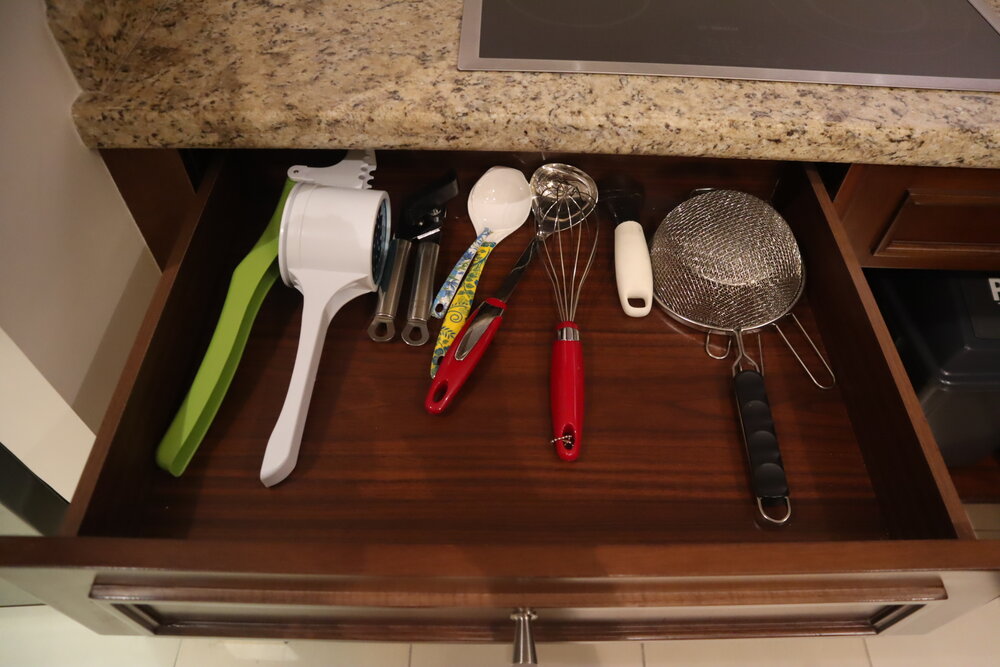
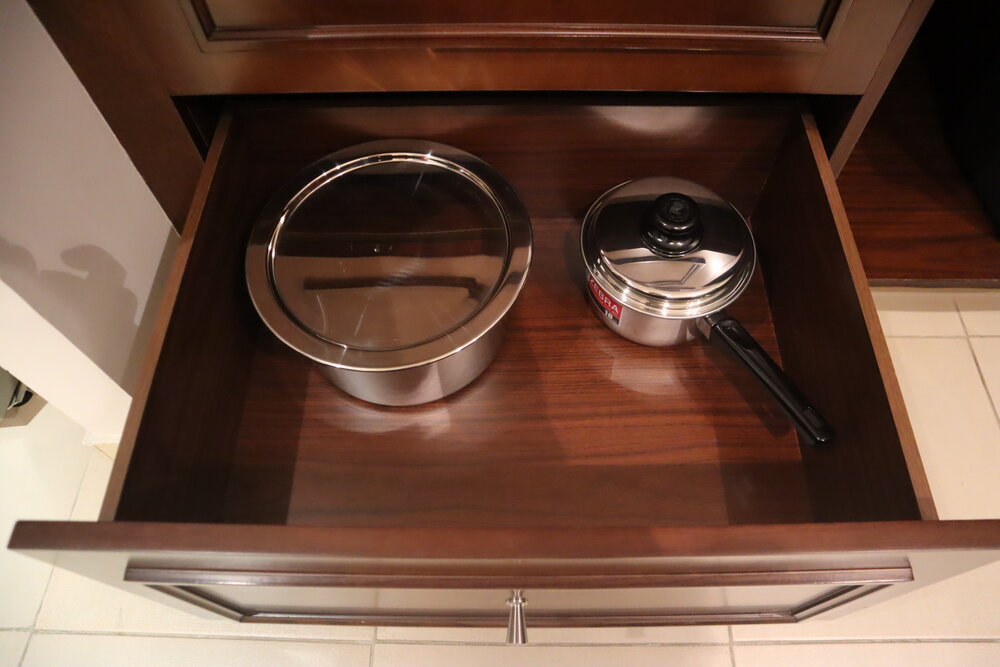
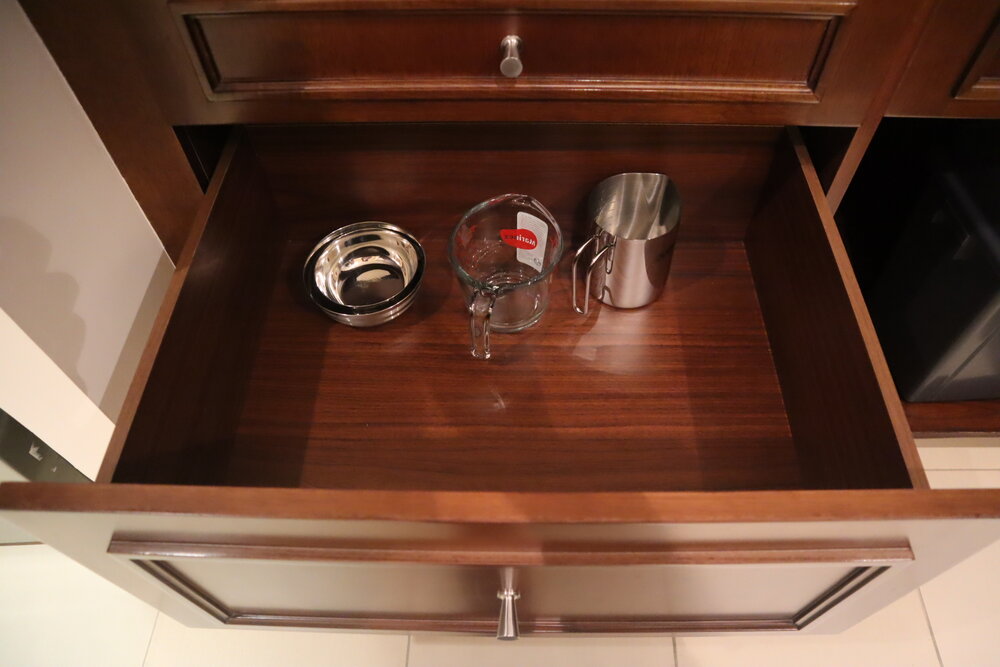
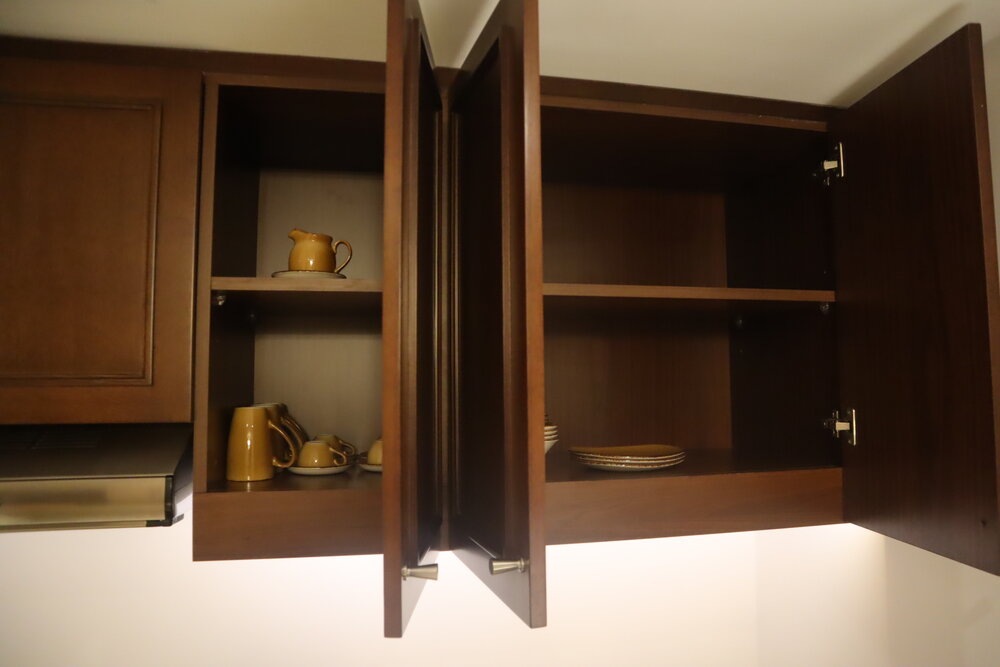
…a dedicated space for coffee and tea, including a Nespresso machine…

Sheraton Oman – Studio Suite coffee machine

Sheraton Oman – Studio Suite coffee & tea kit
…and snacks and drinks in the minibar.

Sheraton Oman – Studio Suite pantry

Sheraton Oman – Studio Suite minibar
Heading back through the suite, we’ll pass through the sliding doors and find ourselves within the bedroom. The king-sized bed was exceedingly comfortable (it’s one of those famous Sheraton Sweet Sleepers), and the bedroom is also fitted with two chairs, a television, and another desk.

Sheraton Oman – Studio Suite bedroom

Sheraton Oman – Studio Suite bedroom
The fact that there were two desks in the suite left me very impressed, since it meant that Jessy and I could both work at the same time without getting in each other’s way.

Sheraton Oman – Studio Suite bedroom desk
Housekeeping had already completed turndown service for the night, and indeed they were very reliable in coming by our room to perform turndown service on every night of the stay.

Sheraton Oman – Turndown service
The closet and bathroom are adjacent to each other, both accessible from within the bedroom.

Sheraton Oman – Studio Suite closet and bathroom
Similar to the rest of the suite, the bathroom was a very good size. Jessy and I were treated to double sinks, each with our own mirrors with LED lighting.

Sheraton Oman – Studio Suite master bathroom

Sheraton Oman – Studio Suite sinks
Opposite that were the shower and bathtub, both of which were quite large as well. The shower had one of my favourite features of any shower – a bench to sit down as the water cascades around you – and the effect was amplified further by the shower’s excellent water pressure.

Sheraton Oman – Studio Suite shower

Sheraton Oman – Studio Suite bathtub
The toilet and bidet are positioned behind some frosted glass at the far end of the bathroom.

Sheraton Oman – Studio Suite toilet and bidet
In addition to the master bathroom, the Studio Suite also had a half-bath, which is located near the foyer, and only features a toilet, bidet, and sink.

Sheraton Oman – Studio Suite foyer

Sheraton Oman – Studio Suite half-bath
Overall, I was extremely impressed by the Sheraton Oman’s Studio Suite. The suite has a generous square footage and therefore accommodates many different types of seating, furniture, and even a full kitchenette. If I had one complaint, it’d be that the decor in the suite was pretty stale, but that’s probably more a function of the Sheraton’s relatively weak brand identity than anything else.
Sheraton Oman – Breakfast
Breakfast was served in Asado, the hotel’s South American grill restaurant, from 6:30am to 11am every morning. (Although I have to say, I wasn’t really sure why a hotel in Oman would choose a South American grill as its signature restaurant.)

Sheraton Oman – Asado restaurant

Sheraton Oman – Asado restaurant breakfast
A wide selection of Western, Middle Eastern, and Indian staples were available. The Indian breakfast foods seemed to be the signature dishes, and we quite liked the dosa flatbread served with idli chutney and sambar chowder.
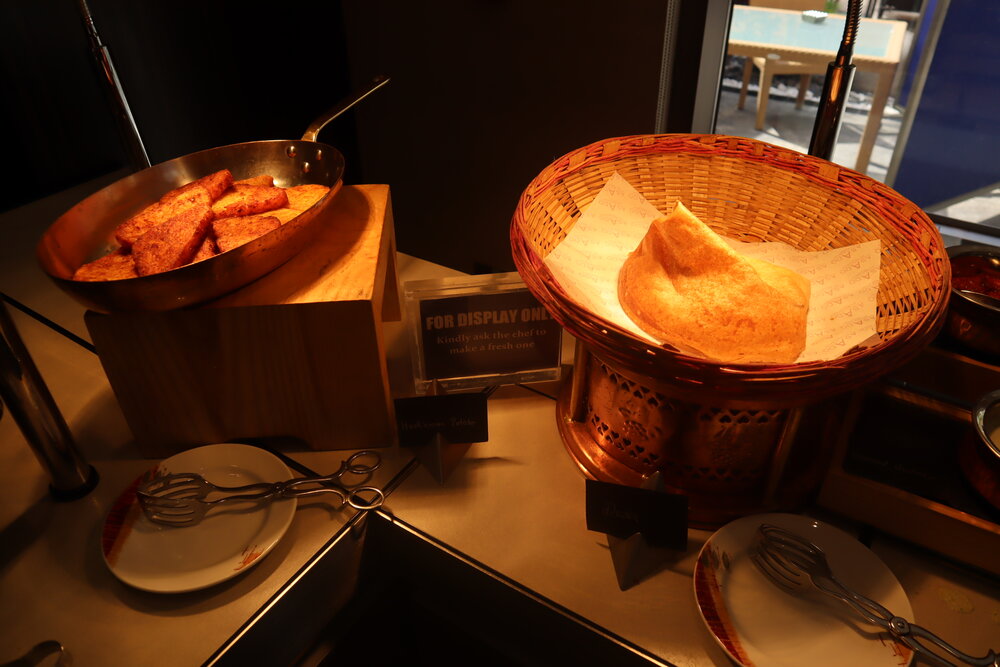
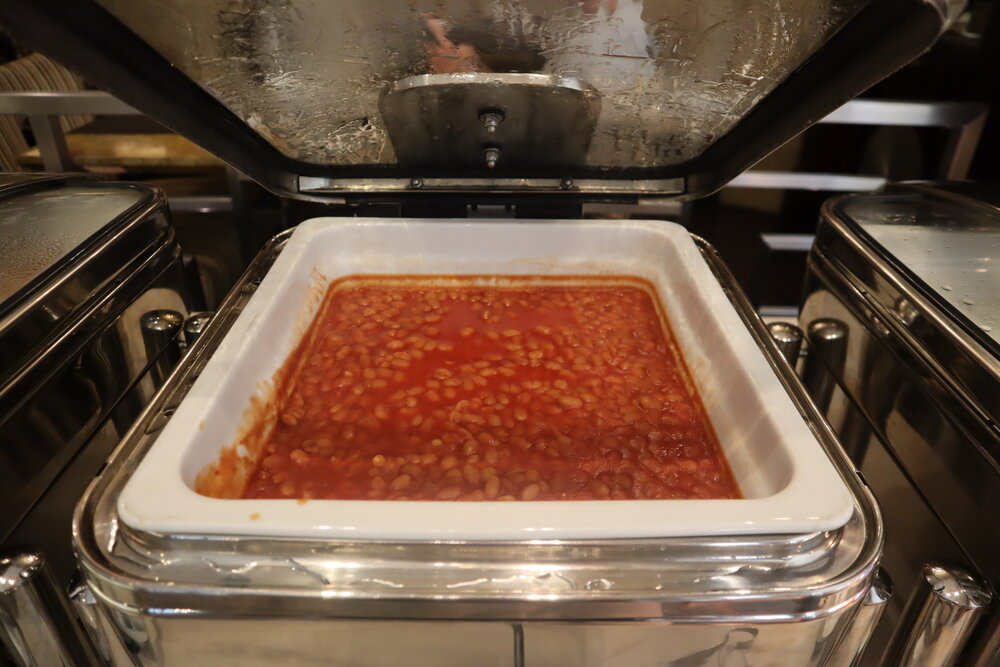
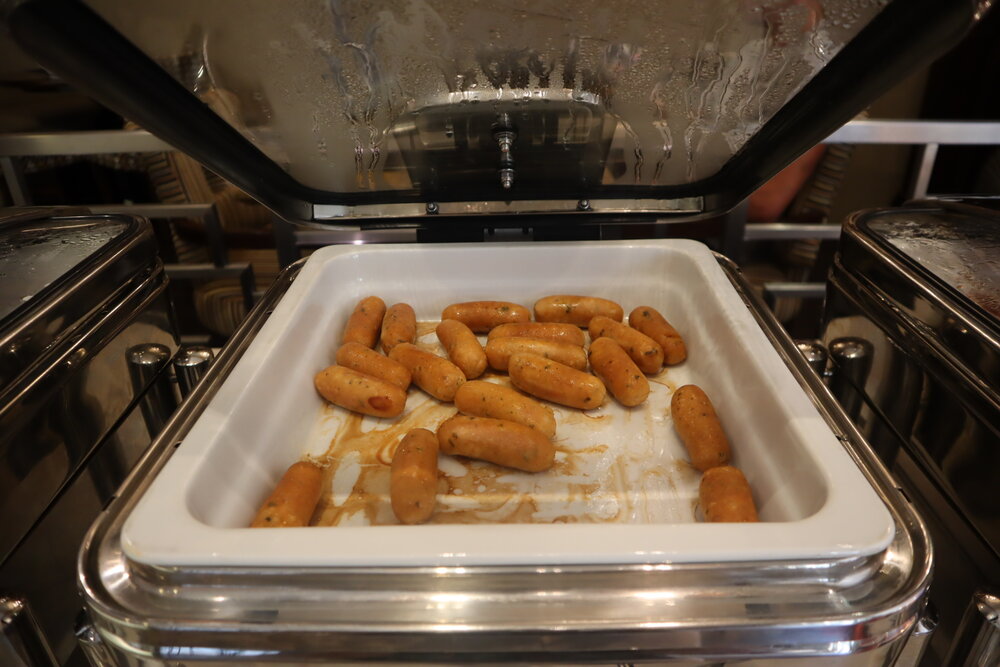
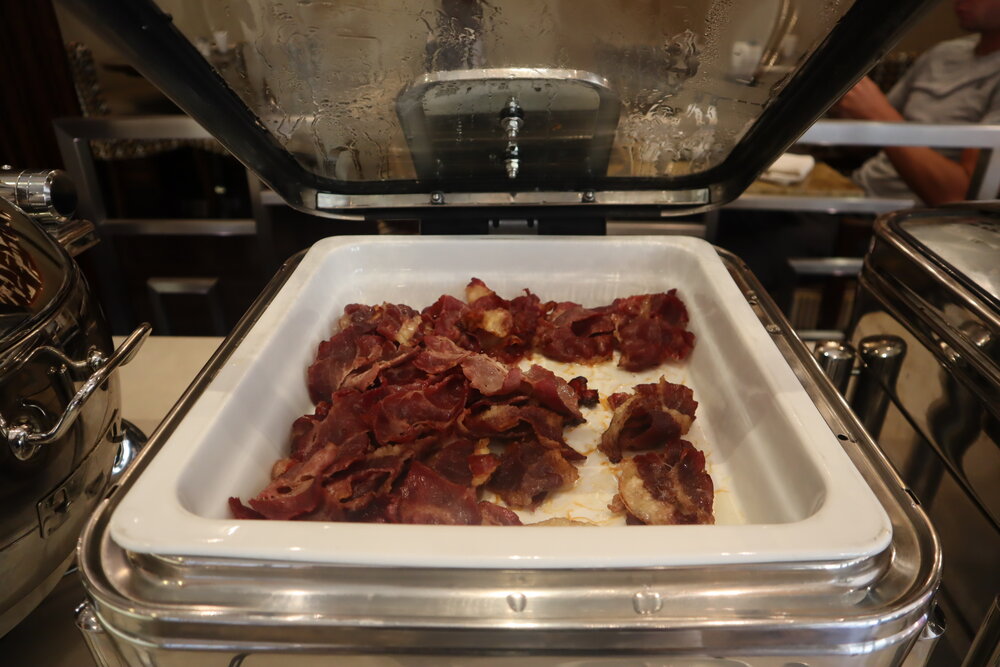
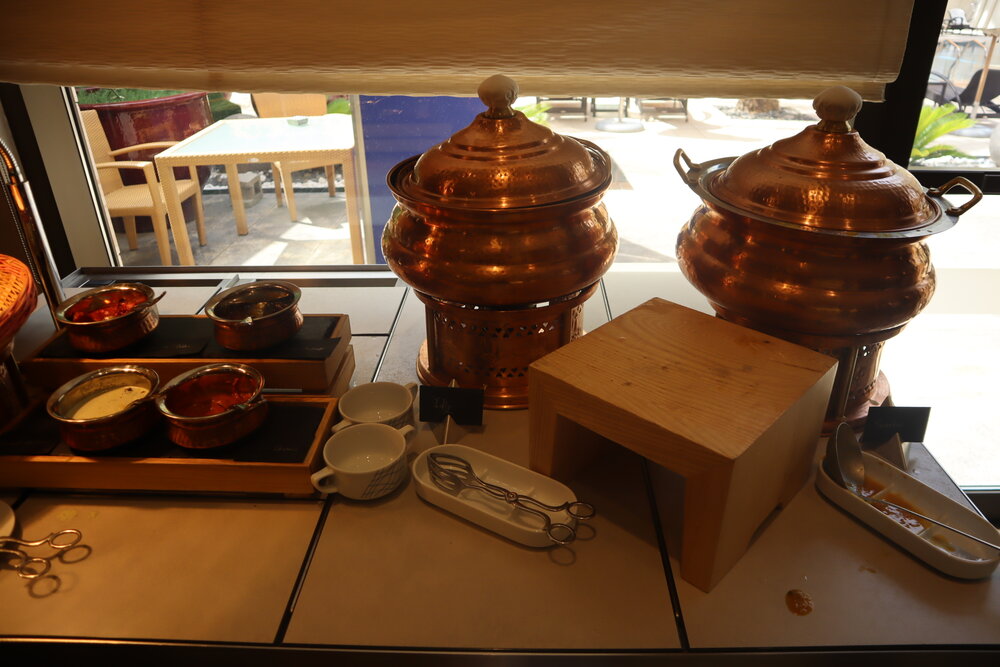
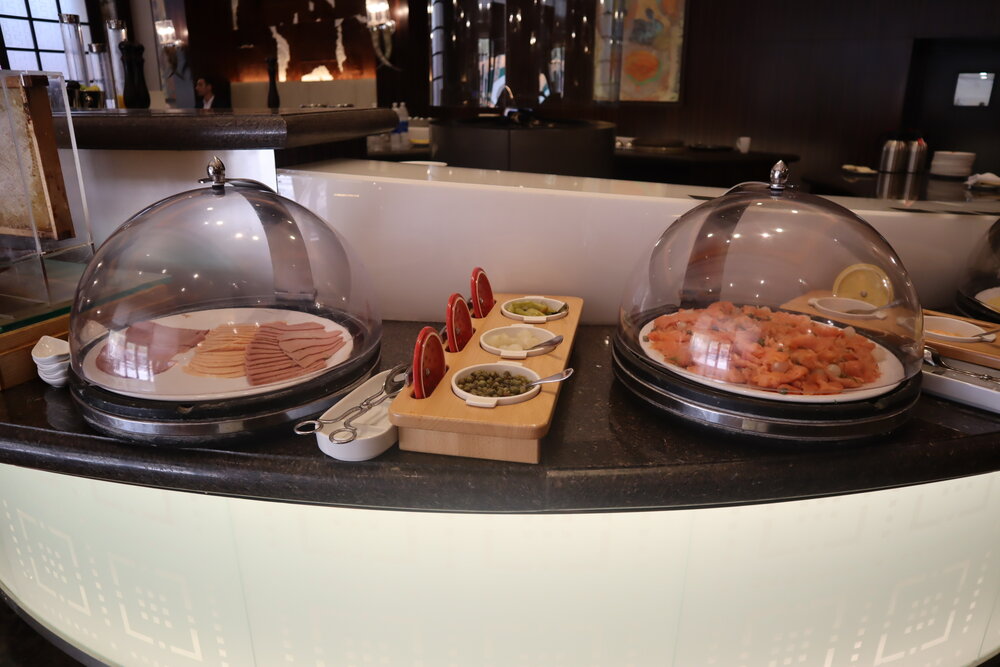
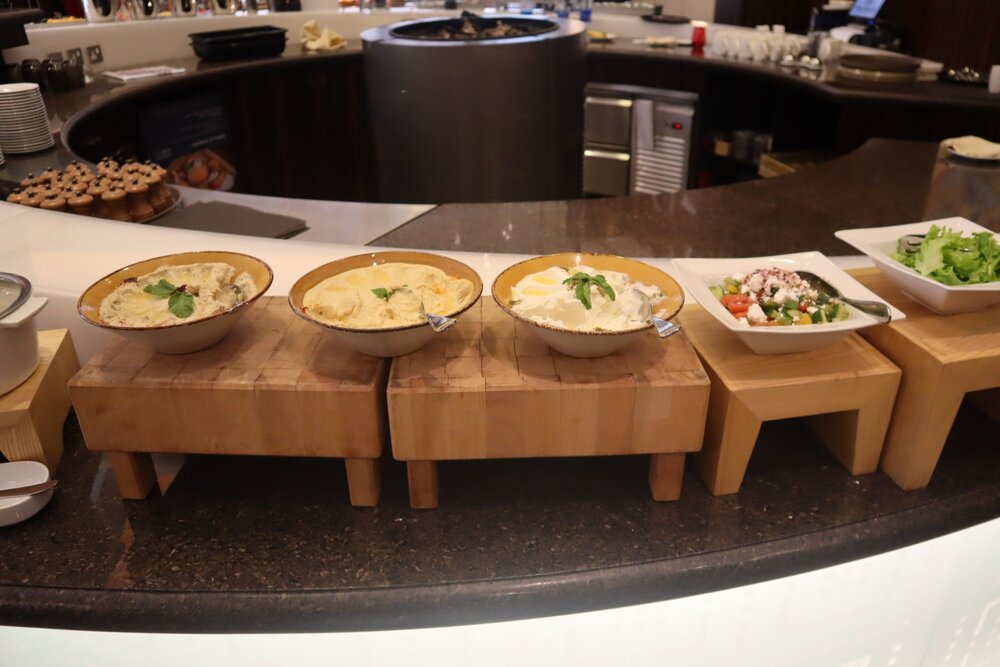
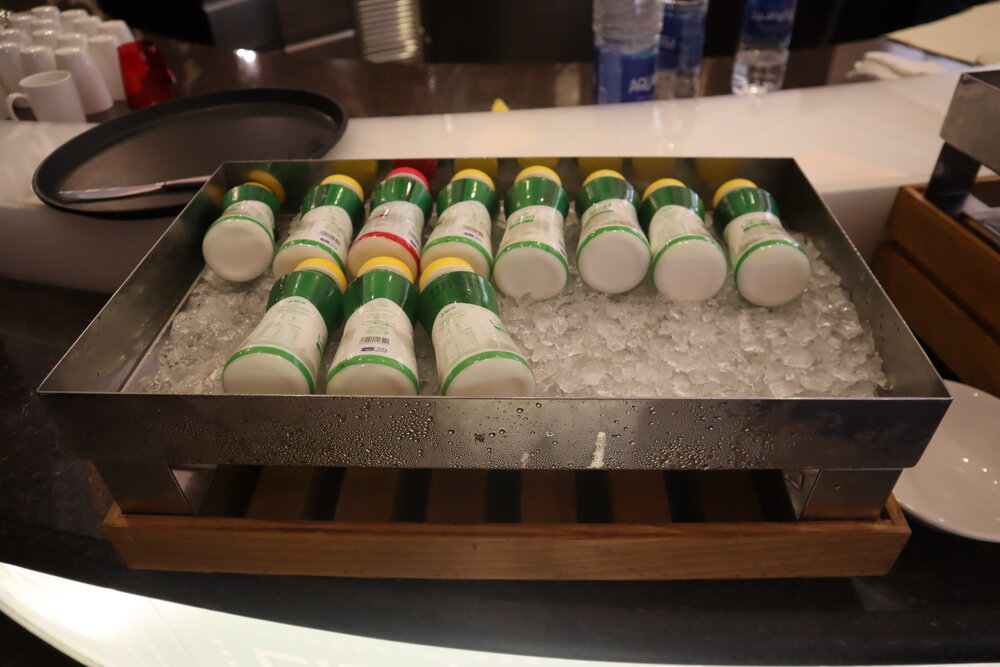
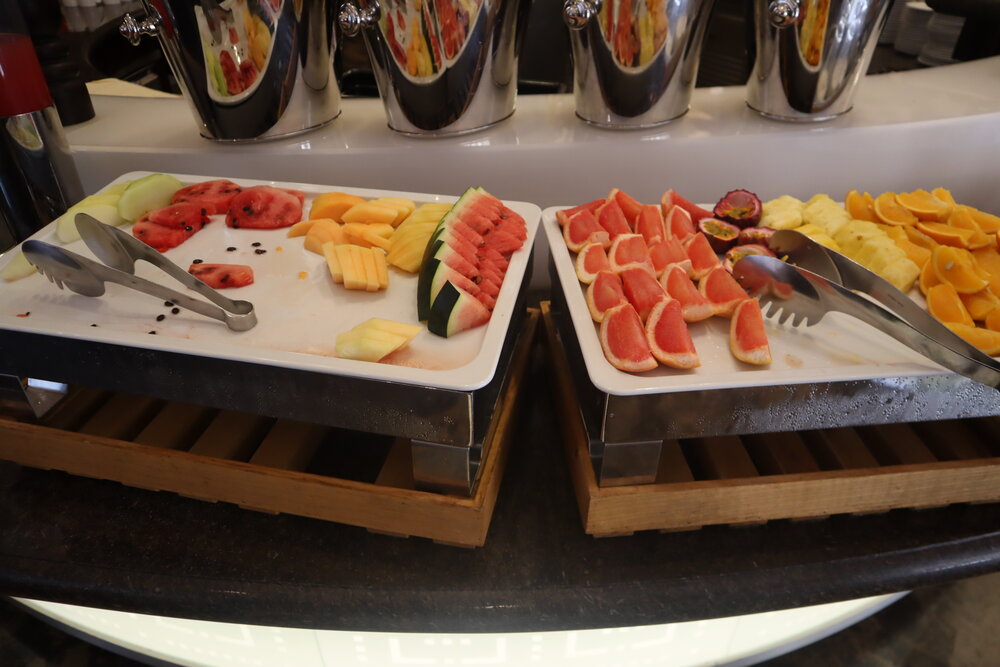
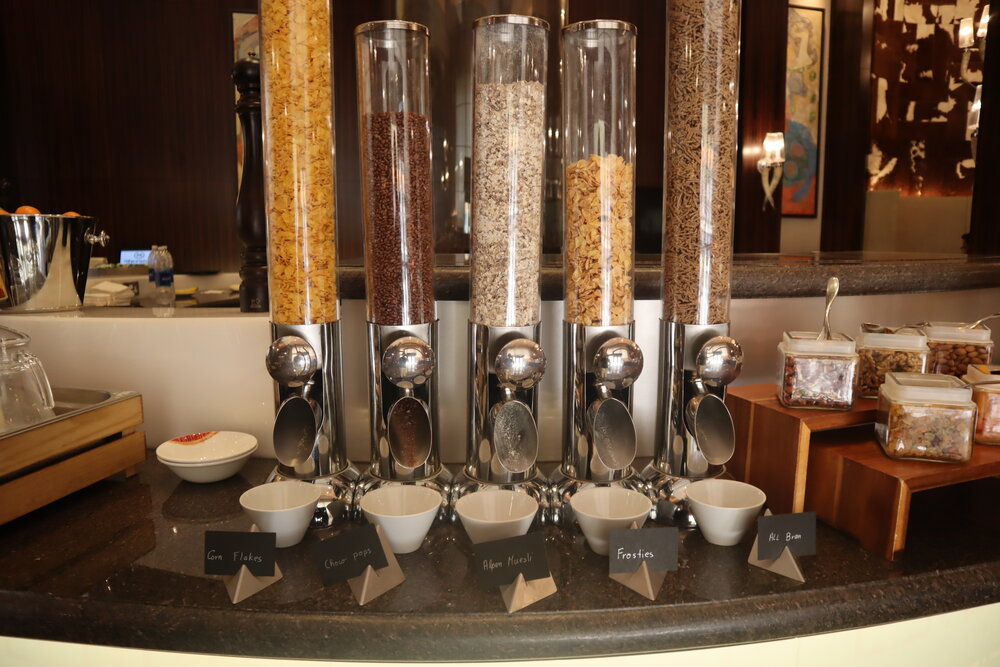
The breakfast buffet was a quiet place on most days, and there was no live cooking station. Instead, you’d order items like the dosa or omelettes or scrambled eggs from the waiter, and the chef would prepare the dish for you and bring it to your table.

Sheraton Oman – Asado restaurant breakfast
We thought the breakfast was outstanding, and enjoyed eating here every morning of our stay.
Sheraton Oman – Sheraton Club
We also visited the Sheraton Club lounge for the evening spread on a few nights. The Club is located on the 13th floor, although its hours were reduced during Ramadan, opening at 3pm and closing at midnight. Furthermore, the Sheraton Club wasn’t serving alcohol during the holy month, instead providing guests with a non-alcoholic Happy Hour.

Sheraton Oman – Sheraton Club
There was always an attendant working the front desk to welcome you to the Sheraton Club. I was happy that the attendants got to know us after a few days, and would address us by name in welcoming us back to the lounge.

Sheraton Oman – Sheraton Club front desk
The lounge consisted of two large rooms with varied types of seating. The dining area was home to the buffet spread and several dining tables, while the rest of the lounge featured many types of couches, chairs, and stools.

Sheraton Oman – Sheraton Club seating

Sheraton Oman – Sheraton Club seating

Sheraton Oman – Sheraton Club seating
The canapé spread varied every evening, but would usually consist of two hot dishes (one vegetarian and one meat-based), in addition to a selection of finger foods like cheese, salmon, salad bowls, bread, and sweet treats. Overall, the evening spread functioned well as a dinner replacement in case you weren’t in the mood to leave the hotel (and Jessy and I found ourselves in this mood rather often during our time here).
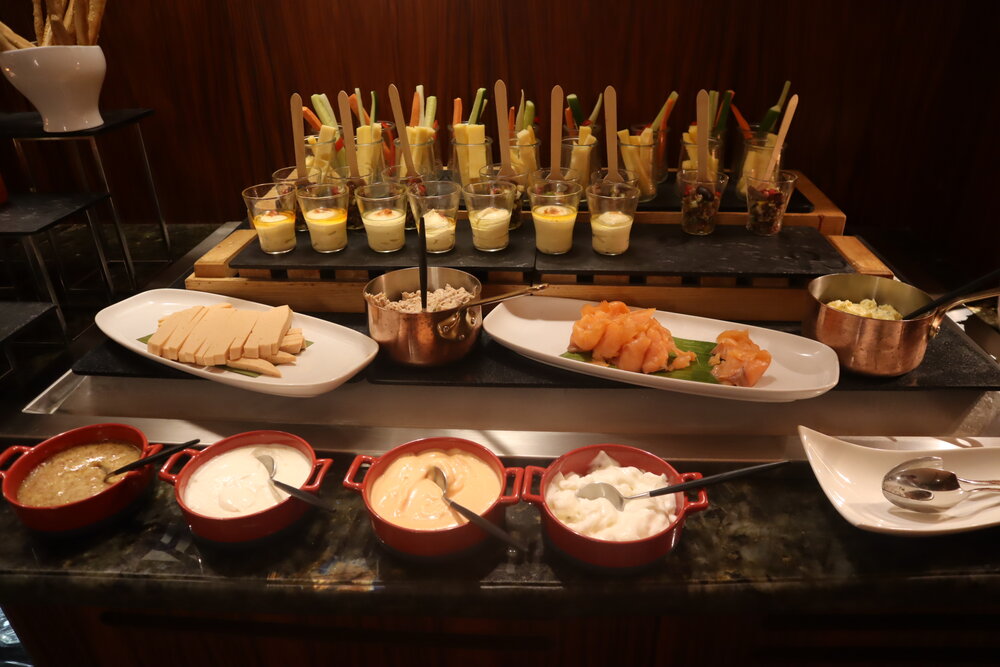
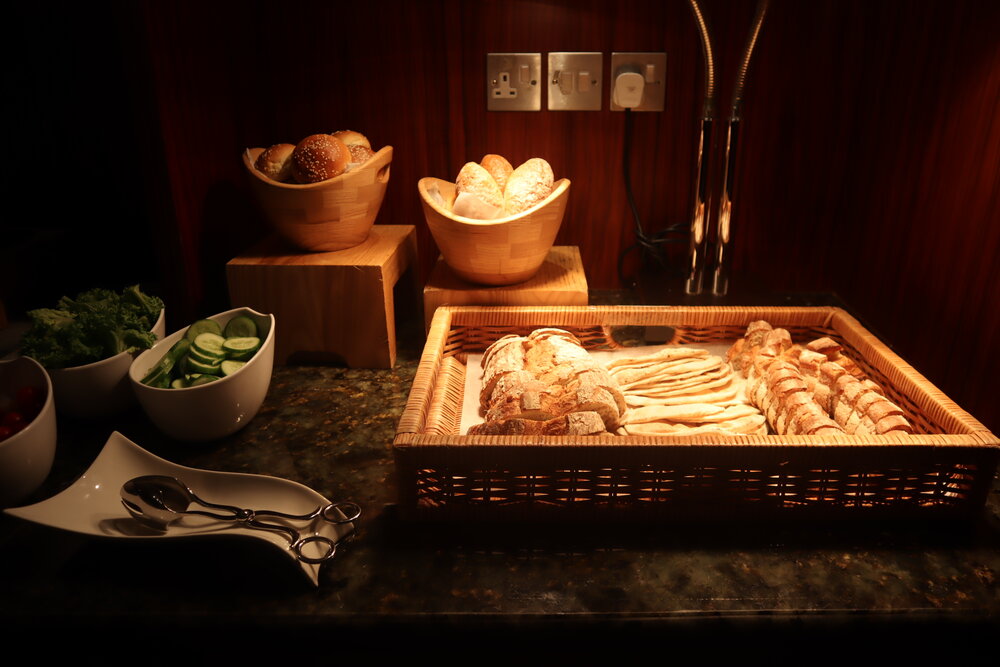
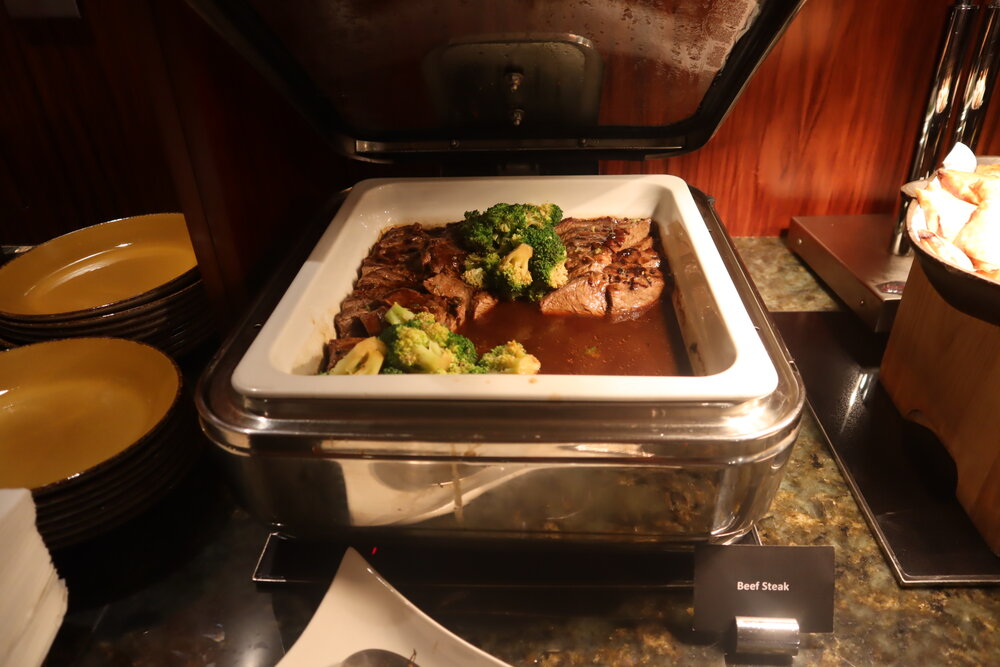
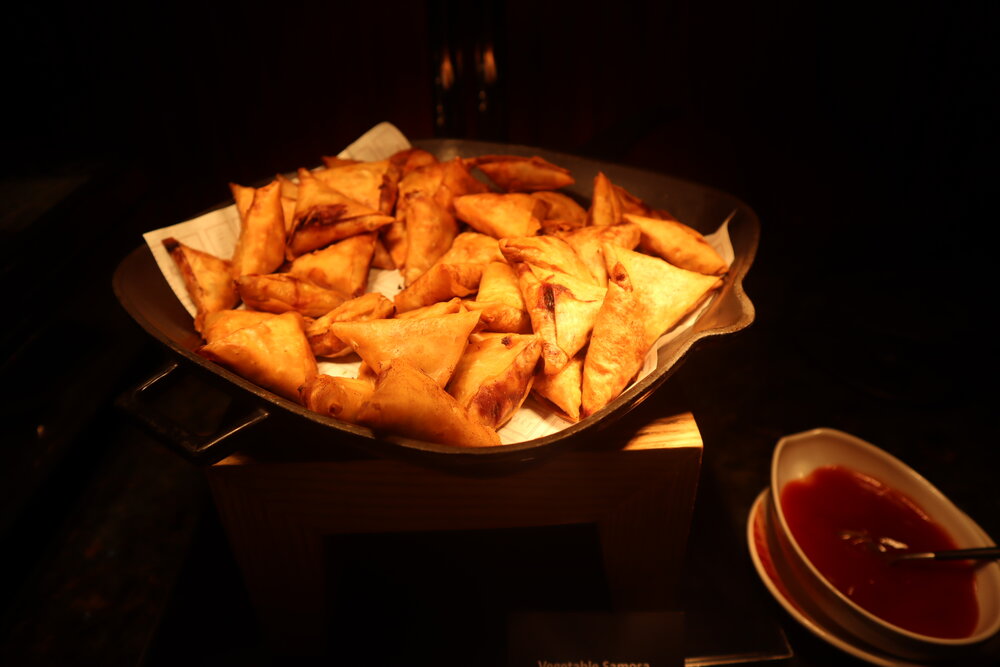
In addition to the usual coffee and tea, soft drinks, and juices, guests could also try a few freshly prepared fruit punches as part of the non-alcoholic Happy Hour.

Sheraton Oman – Sheraton Club juice bar
Deeper within the lounge was a set of computer workstations and a conference room.

Sheraton Oman – Sheraton Club computer workstations

Sheraton Oman – Sheraton Club conference room
Sheraton Oman – Other Facilities
Most Sheraton hotels around the world are relatively large properties with lots of amenities for guests to enjoy, and this one was no exception. One of the most eye-catching parts of the hotel was the hotel’s “Courtyard”, which is the space between the lobby and the Asado restaurant.

Sheraton Oman – Courtyard

Sheraton Oman – Courtyard
This space was decorated beautifully for the Ramadan celebrations, including a huge set of four artificial trees designed to look like cherry blossoms. The hotel’s Iftar buffet spread (for the breaking of the fast every day during Ramadan) was hosted here at the price of OMR 15 ($50) per person.
The hotel also has an outdoor pool, which we made use of a few times to cool down from the sweltering Middle East summer heat. Crucially, the pool was covered with a cloth awning, which did a decent job at keeping the sunlight away.

Sheraton Oman – Outdoor pool

Sheraton Oman – Outdoor pool
The pool was more suitable to taking a dip rather than swimming laps, and also offered a few submerged lounge chairs as a way to relax.

Sheraton Oman – Outdoor pool
Meanwhile, the hotel’s fitness centre was located in the basement level, and had a wide suite of exercise equipment. I came down for a workout on the night before we departed for Dubai.

Sheraton Oman – Fitness centre

Sheraton Oman – Fitness centre

Sheraton Oman – Fitness centre
Interestingly, there was also a separate fitness centre designated as “Ladies Only”. I suppose this was mostly to cater to Muslim ladies, since I saw a few non-Muslim ladies using the main fitness centre.

Sheraton Oman – Ladies Only fitness centre
On the fifth day of our stay, Jessy and I packed our bags, put the Do Not Disturb sign on our door, sauntered out of the elevator and straight out of the Sheraton Oman’s front door – past a rather bewildered doorman – and made our way back to the Ruwi bus station to catch the bus to the airport. After all, I still wanted to earn my seven elite qualifying nights for the stay, so I had no intention of actually checking out early even though I’d be vacating the hotel.
The Best of Oman
I’ll also take this moment to talk about a few things we did during our time in Oman. Having battled through late-night flights and early mornings for almost every single day of our trip thus far throughout Turkey, Greece, Egypt, and Jordan, Jessy and I were content to take things at a much slower pace in Oman. This was partly due to fatigue, and partly due to a spate of flash floods in the country that affected many of the places in Oman’s supposedly stunning countryside that we had hoped to visit.
As a result of this unfortunate timing, we decided to spend our time exploring as much of the capital, Muscat, as we could manage in the sweltering 40˚C heat. The city’s star attraction was no doubt the Sultan Qaboos Grand Mosque, about a 30-minute drive away from the hotel.
(One of the challenges we encountered in Muscat was the relative difficulty in getting around; similar to what we found in Jordan, taxis were expensive while public transport was available but limited, so we made use of both transport methods rather begrudgingly. As an extremely spread-out city, Muscat was by no means walkable at all.)

Sultan Qaboos Grand Mosque, Muscat
The Sultan Qaboos Grand Mosque is only open to non-religious visitors between 9am and 11am of each day, and ladies are asked to cover their heads when they step inside. As someone who’s rather new to visiting the many mosques around the world, I was particularly struck by the Grand Mosque, whose white marble surfaces glisten spectacularly in the sunlight.

Sultan Qaboos Grand Mosque, Muscat
50,000+ travellers get this email
Weekly deals, credit card insights, and points strategies – free forever.

Sultan Qaboos Grand Mosque, Muscat
The Grand Mosque is certainly one of the largest places of worship I’ve visited, and you couldn’t help but admire the intricacy of the vast structure, which was commissioned by the current Sultan of Oman in the late 1990s as gift to his people.

Sultan Qaboos Grand Mosque, Muscat
The interiors are no less grandiose, featuring no less than a dozen chandeliers, an awe-inspiring dome, and ample room for prayer. Moreover, it was also a nice escape from the heat outside.

Sultan Qaboos Grand Mosque, Muscat

Sultan Qaboos Grand Mosque, Muscat
Another example of Muscat’s stunning architecture is the Royal Opera House, Oman’s primary venue for the performance arts. The building is quite a sight to behold from the outside, again coated in a layer of pristine white stone, while the ostentatious interiors again reflect Sultan Qaboos’s propensity for flaunting his country’s wealth.

Royal Opera House, Muscat

Royal Opera House, Muscat
I enjoyed learning more abut the country at the National Museum, which contained exhibits from many points within Oman’s history.
I hadn’t quite appreciated just how strong of a seafaring nation the Omanis had been in the past, even to the point of battling the Portuguese and Dutch naval forces in the region and colonizing Zanzibar on the east coast of Africa.

National Museum of Oman

National Museum of Oman
Alas, one of my regrets from this Middle East trip was not fully taking advantage of the opportunity to explore Oman deeper below the surface.
In speaking to locals, like our guide at the Royal Opera House or the nuns at the Grand Mosque who invited us for some light chatter on “the virtues of Islam”, I got the sense that Omanis were deeply religious, generally well-educated, and extremely hospitable to guests. While I regret only getting to know a little slice of the country on this trip, I do hope to return sometime soon in an effort to right those wrongs.
Conclusion
The Sheraton Oman was a serviceable hotel for us to base ourselves during our time in Oman, if a little lacking in character overall. I was treated to a generous upgrade to the Studio Suite, which came with an impressive wealth of interior furniture, and the hotel’s breakfast and evening spread in the Club Lounge were appetizing as well.
However, I think the hotel does suffer from the same problem as pretty much every Sheraton around the world – I find it to be too businesslike of a brand for their hotels to leave any kind of deep impression or make me wish to return. I was happy enough with this stay at the Sheraton Oman, which was motivated by a specific Marriott Bonvoy redemption opportunity; however, on my next visit to Oman (where I hope to explore the country much more thoroughly), I’ll most likely choose either the W Muscat or the Ritz-Carlton Al Bustan Palace to try out something different.
More Sheraton Hotels
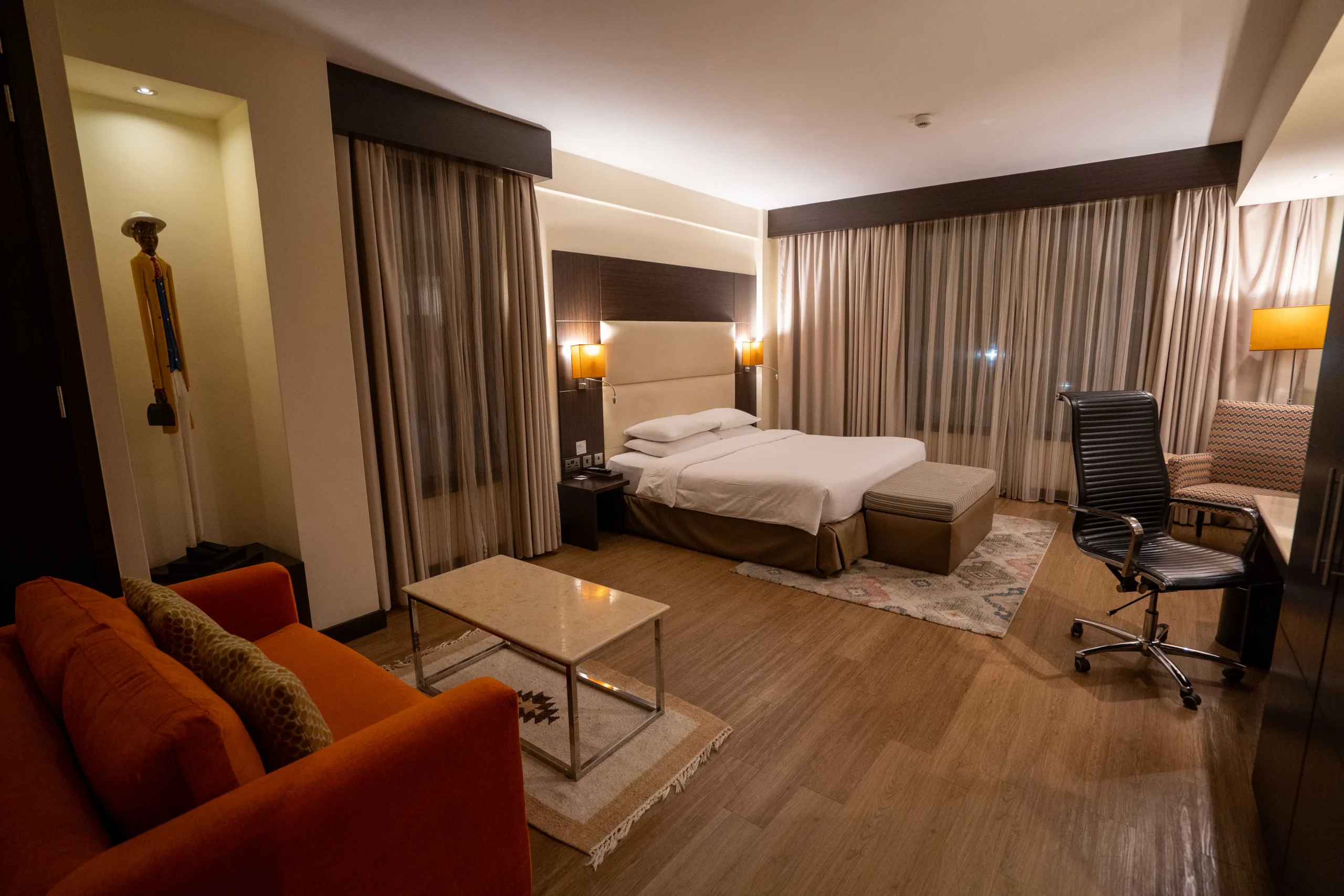
Review: Four Points by Sheraton Nairobi Hurlingham
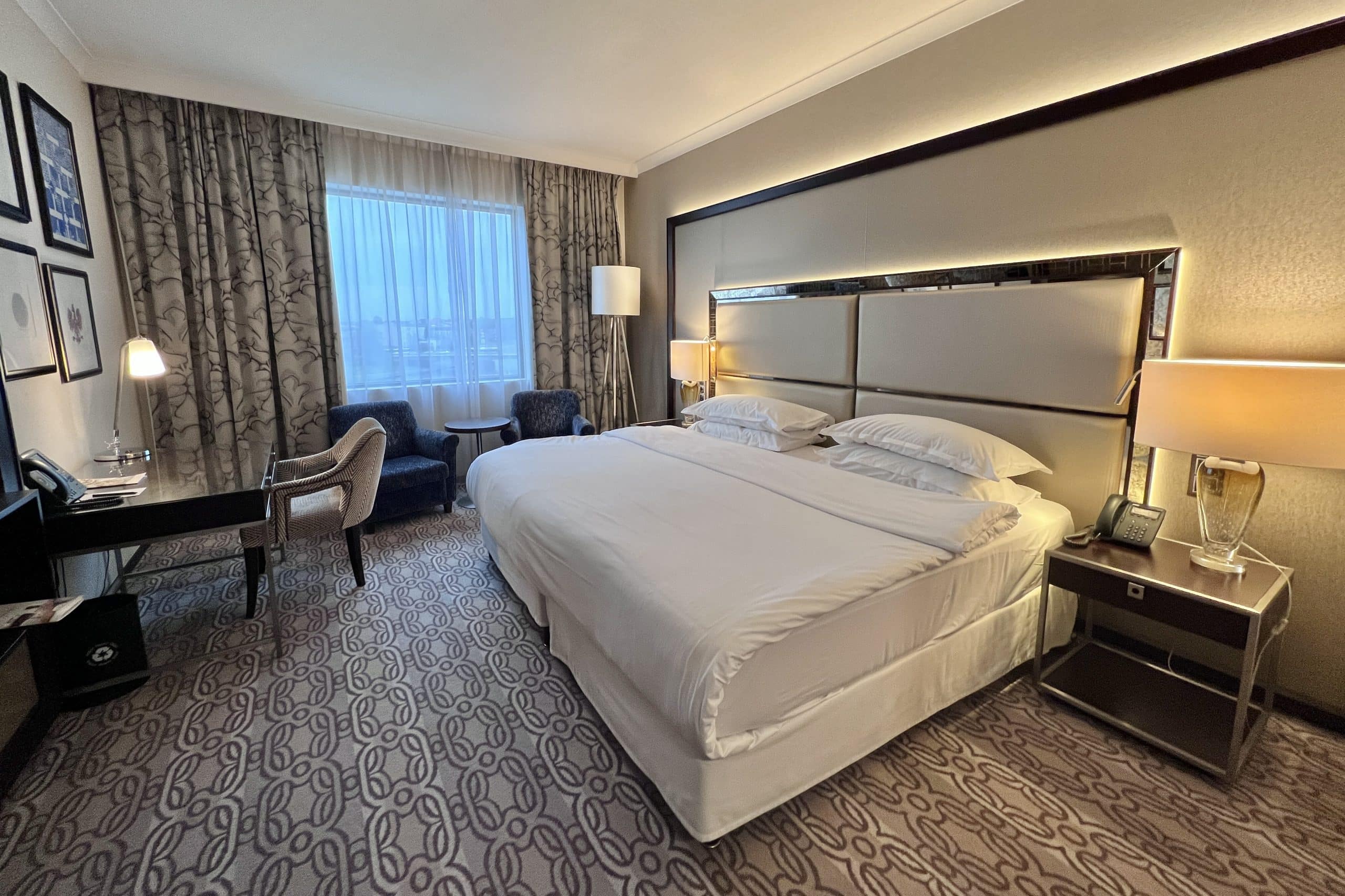
Review: Sheraton Grand Krakow
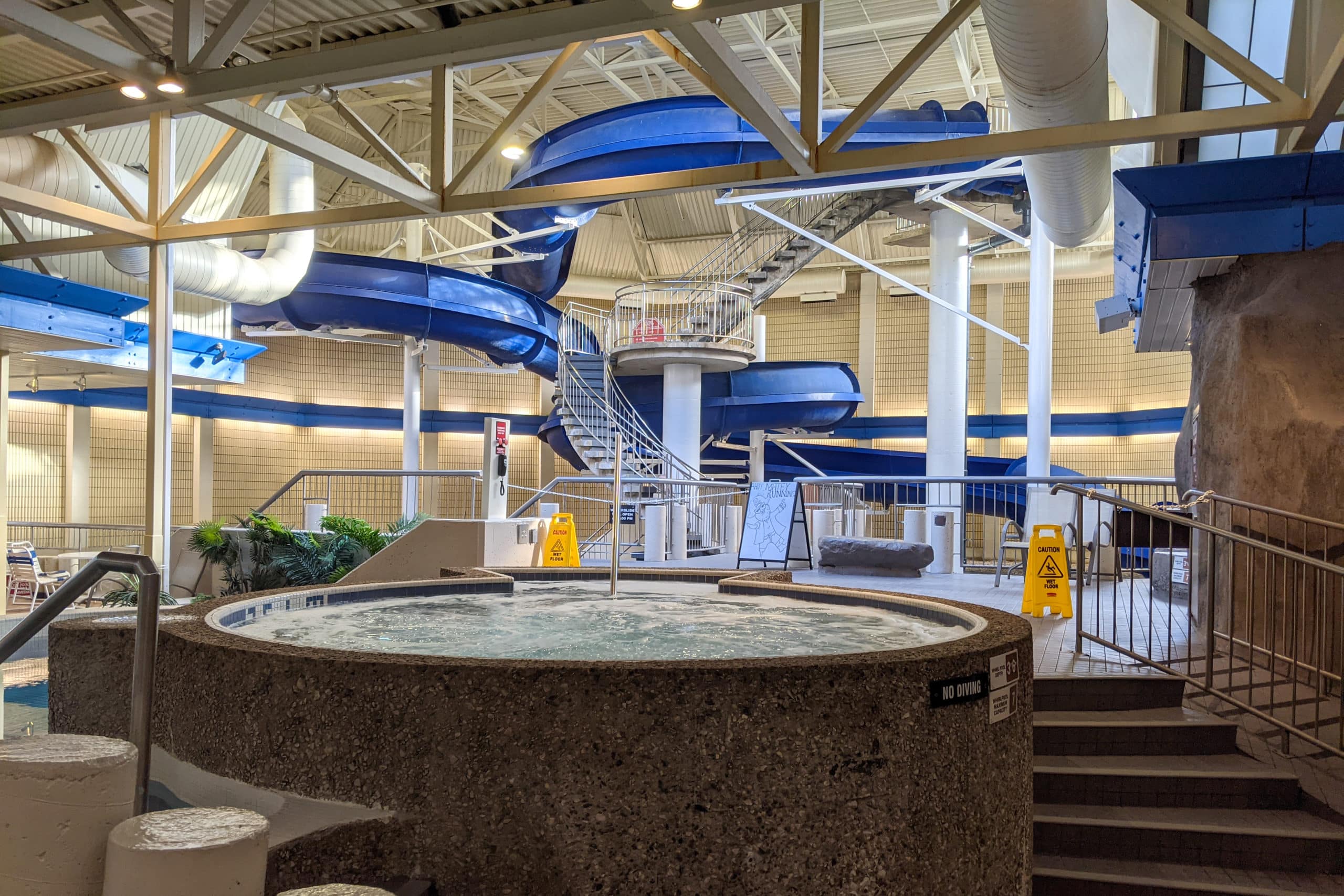
Review: Sheraton Cavalier Saskatoon
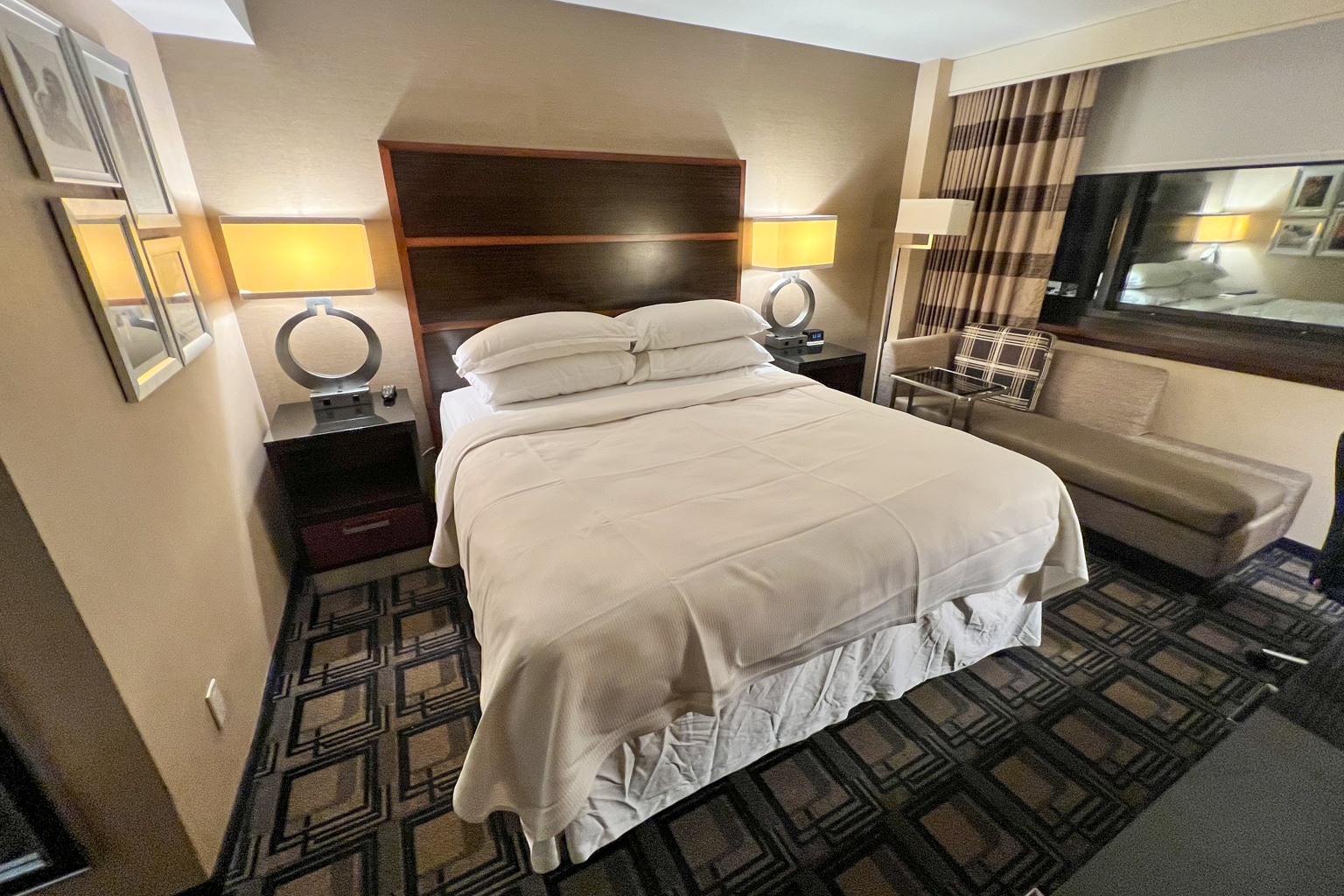
Review: Sheraton New York Times Square
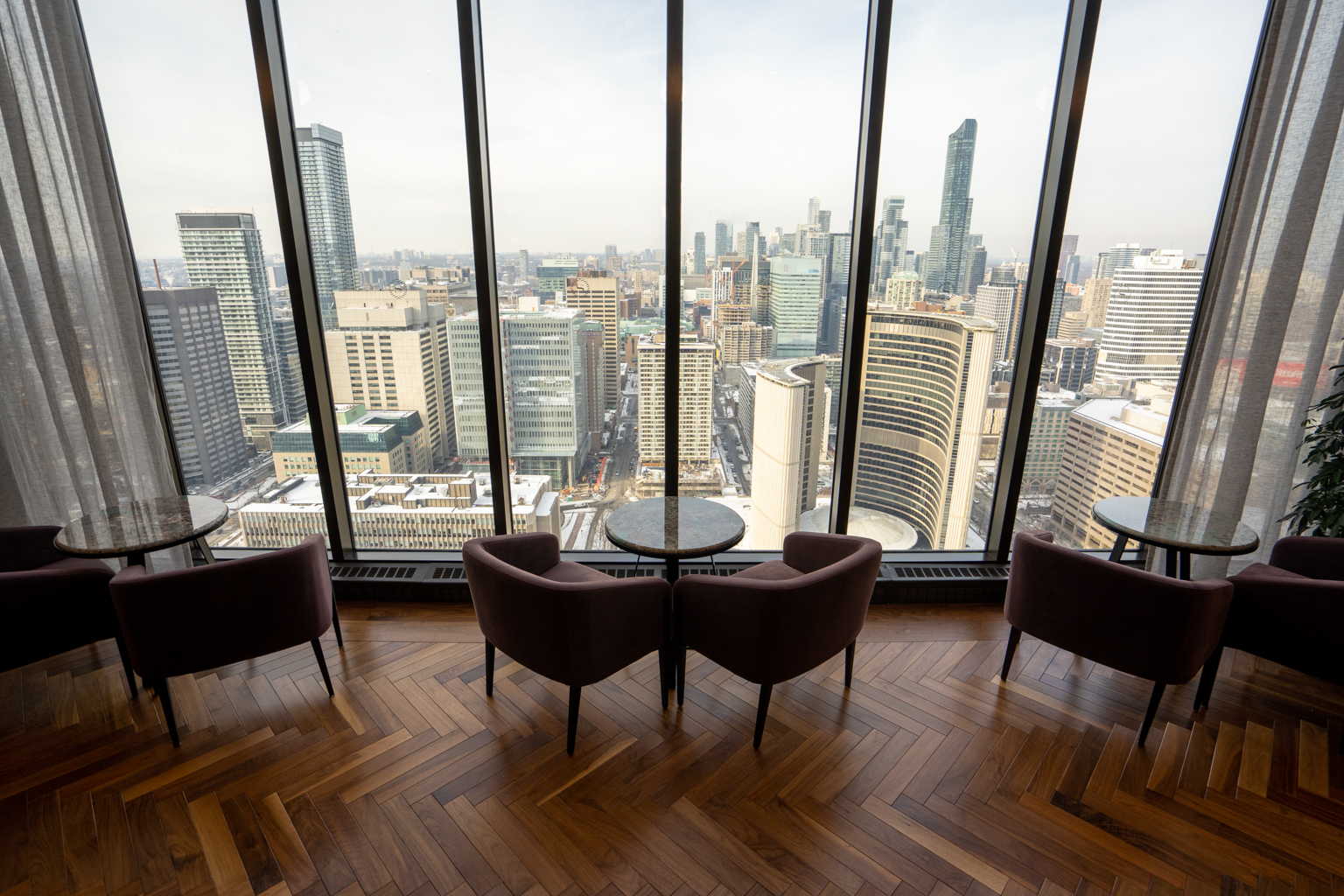
Review: Sheraton Centre Toronto
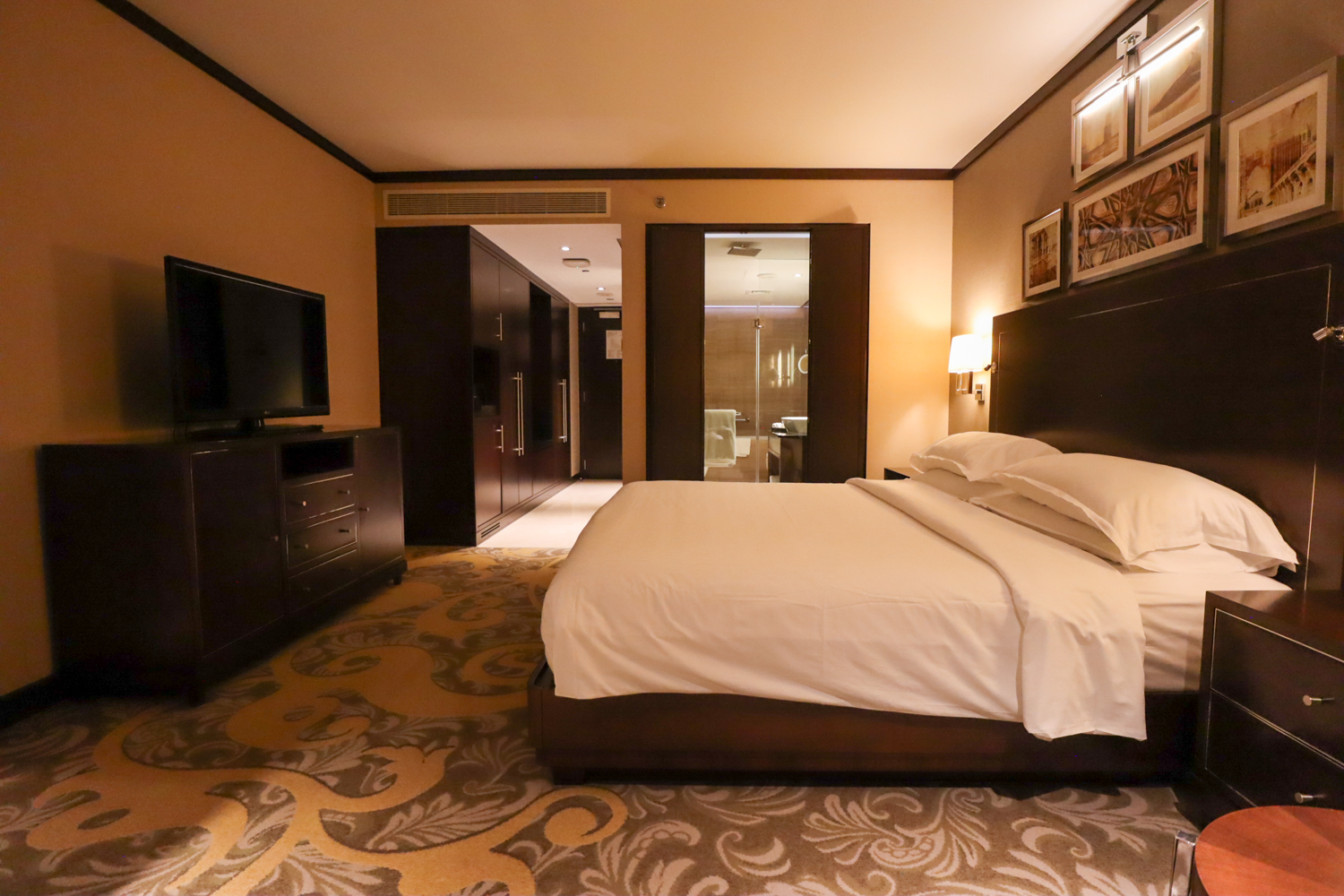
Review: Sheraton Dubai Creek
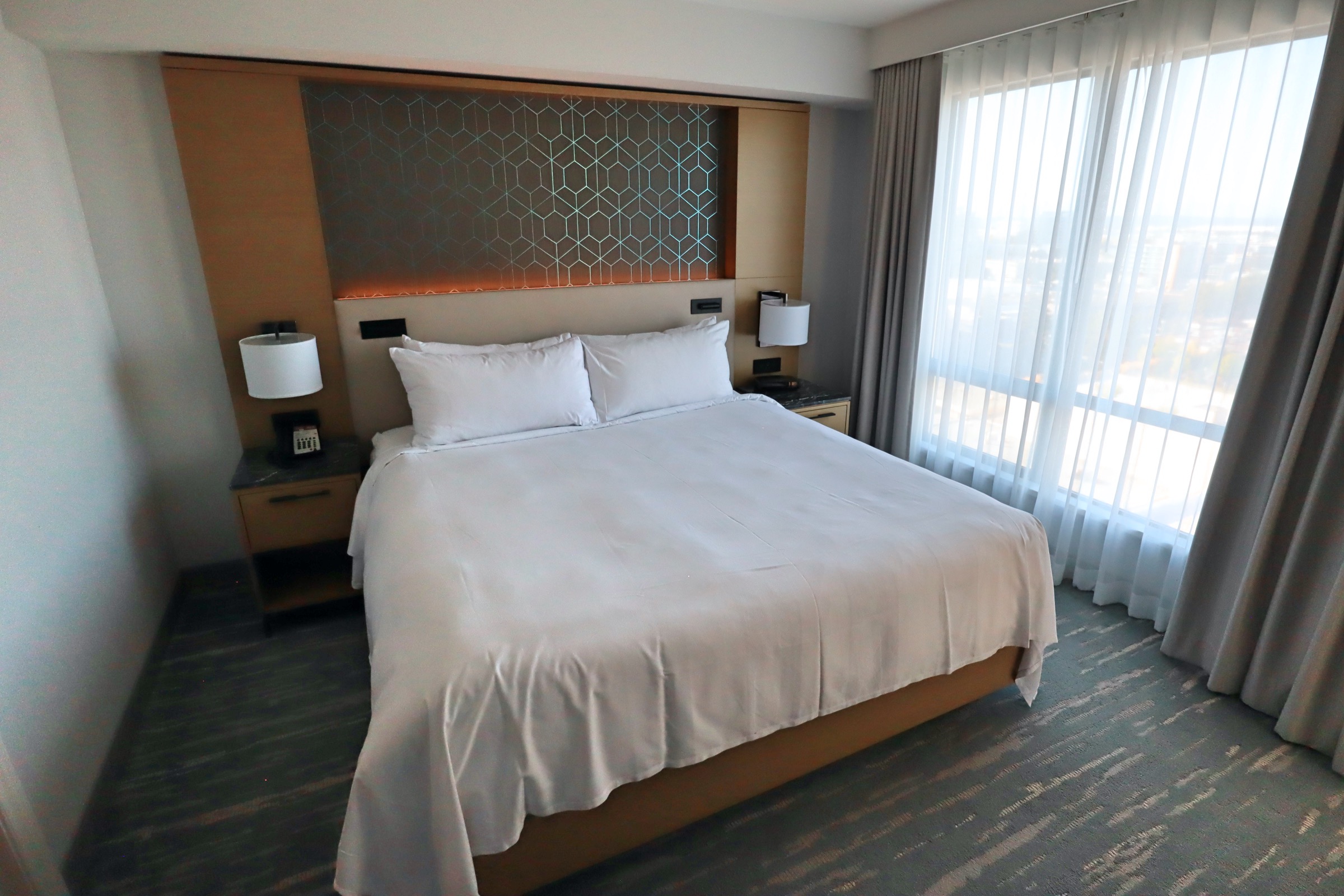
Mini-Review: Sheraton, Marriott, and Hilton Vancouver Airport
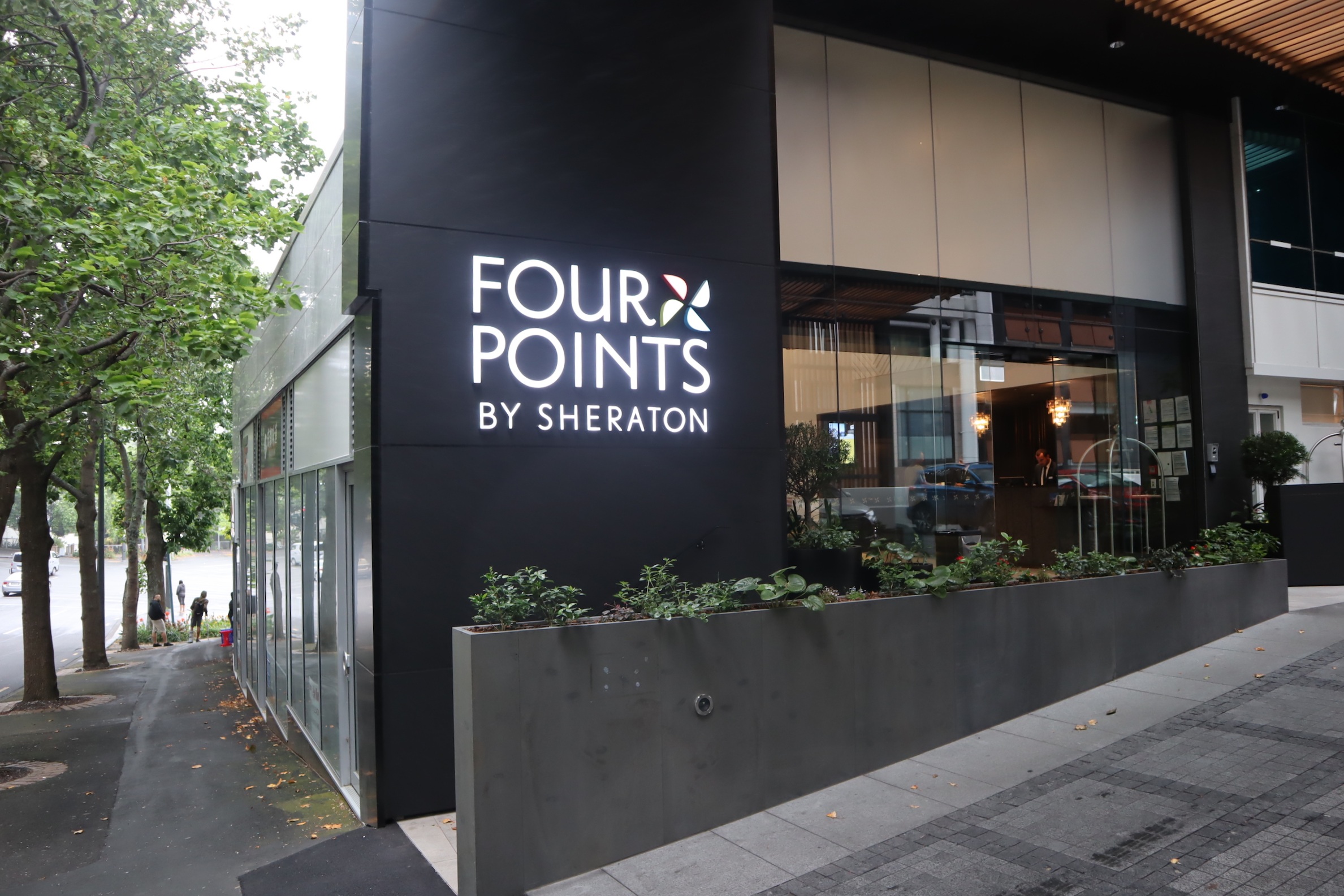
Review: Four Points by Sheraton Auckland
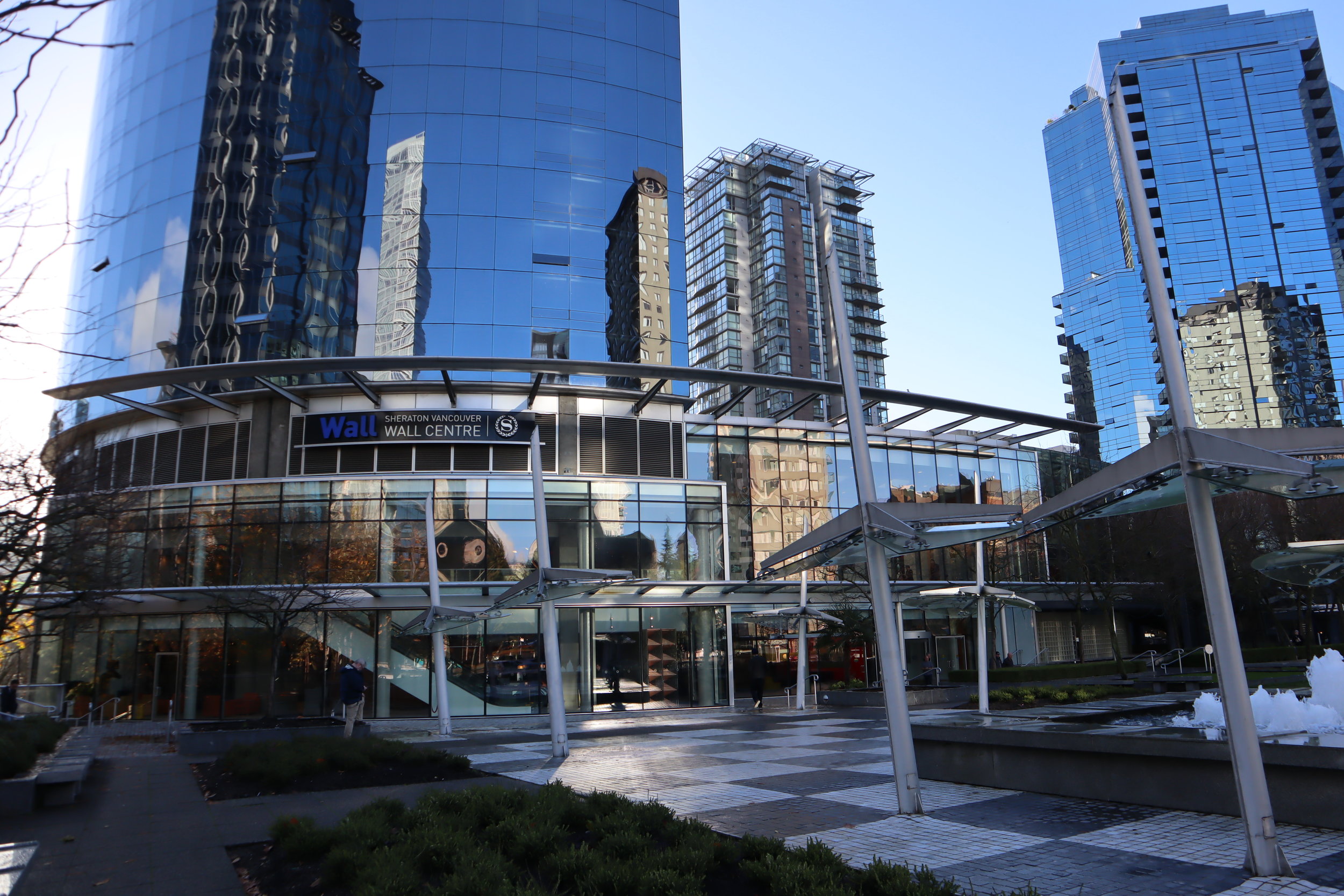
Review: Sheraton Vancouver Wall Centre
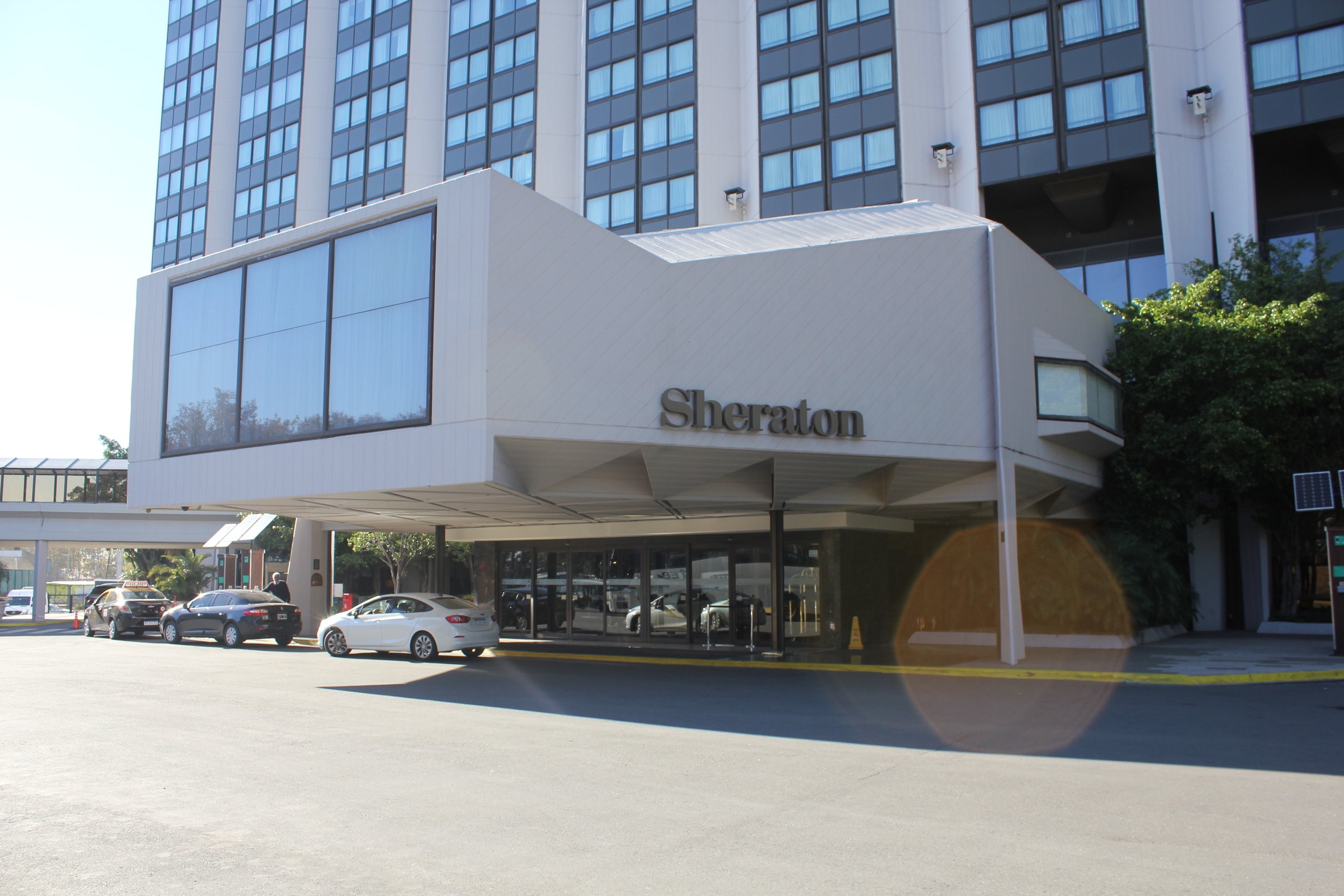
Review: Sheraton Buenos Aires
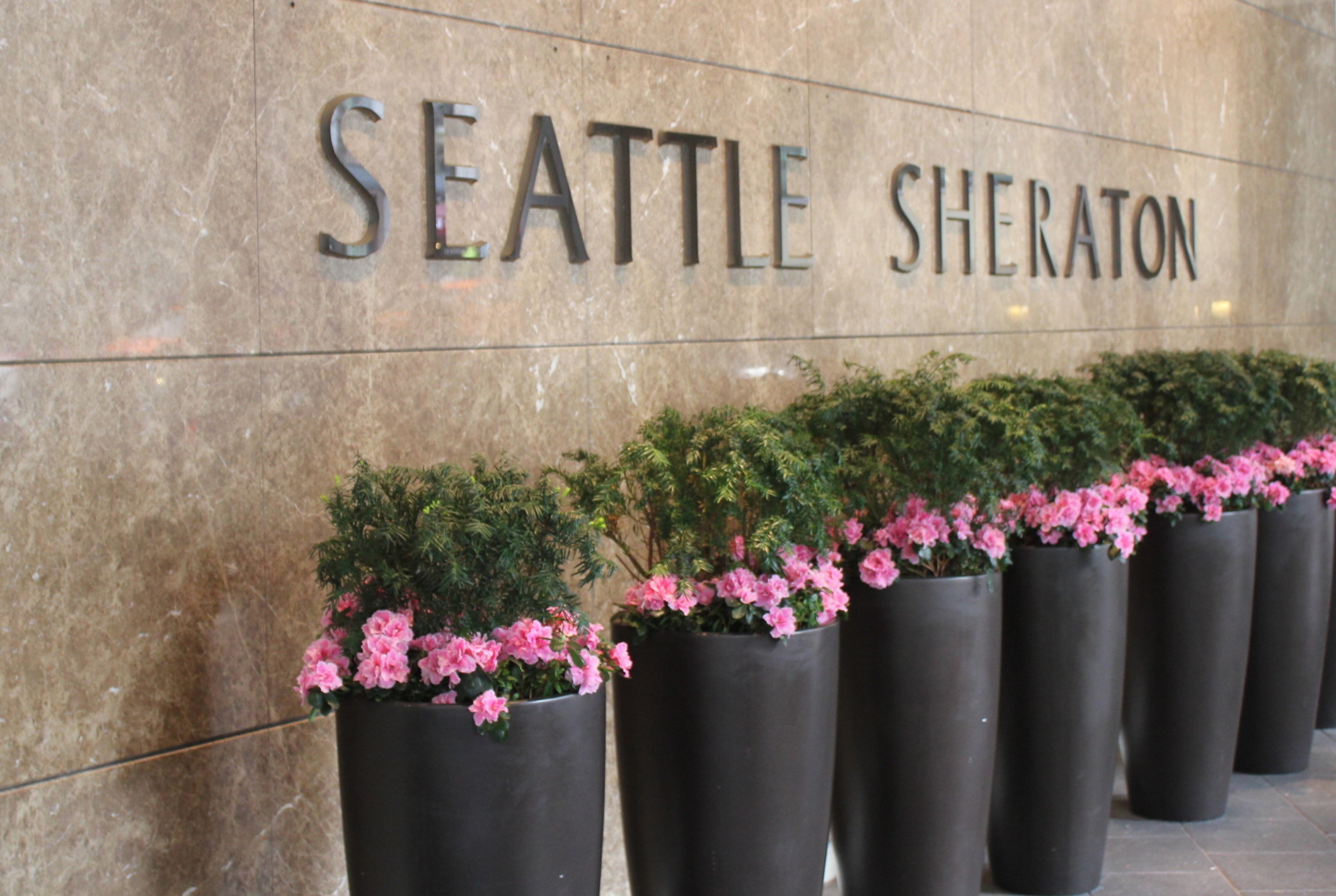
Review: Sheraton Grand Seattle

First-year value
$616
Annual fee: $120
• Earn 80,000 points upon spending $6,000 in the first 6 months
• Plus, earn 30,000 points upon spending in month 13
Earning rates
Key perks
- Silver Elite status + 15 Elite Night Credits
- 35,000-point Free Night Award annually (year 2+)

Annual fee: $120
• Earn 80,000 points upon spending $6,000 in the first 6 months
• Plus, earn 30,000 points upon spending in month 13
Earning rates
Key perks
- Silver Elite status + 15 Elite Night Credits
- 35,000-point Free Night Award annually (year 2+)


